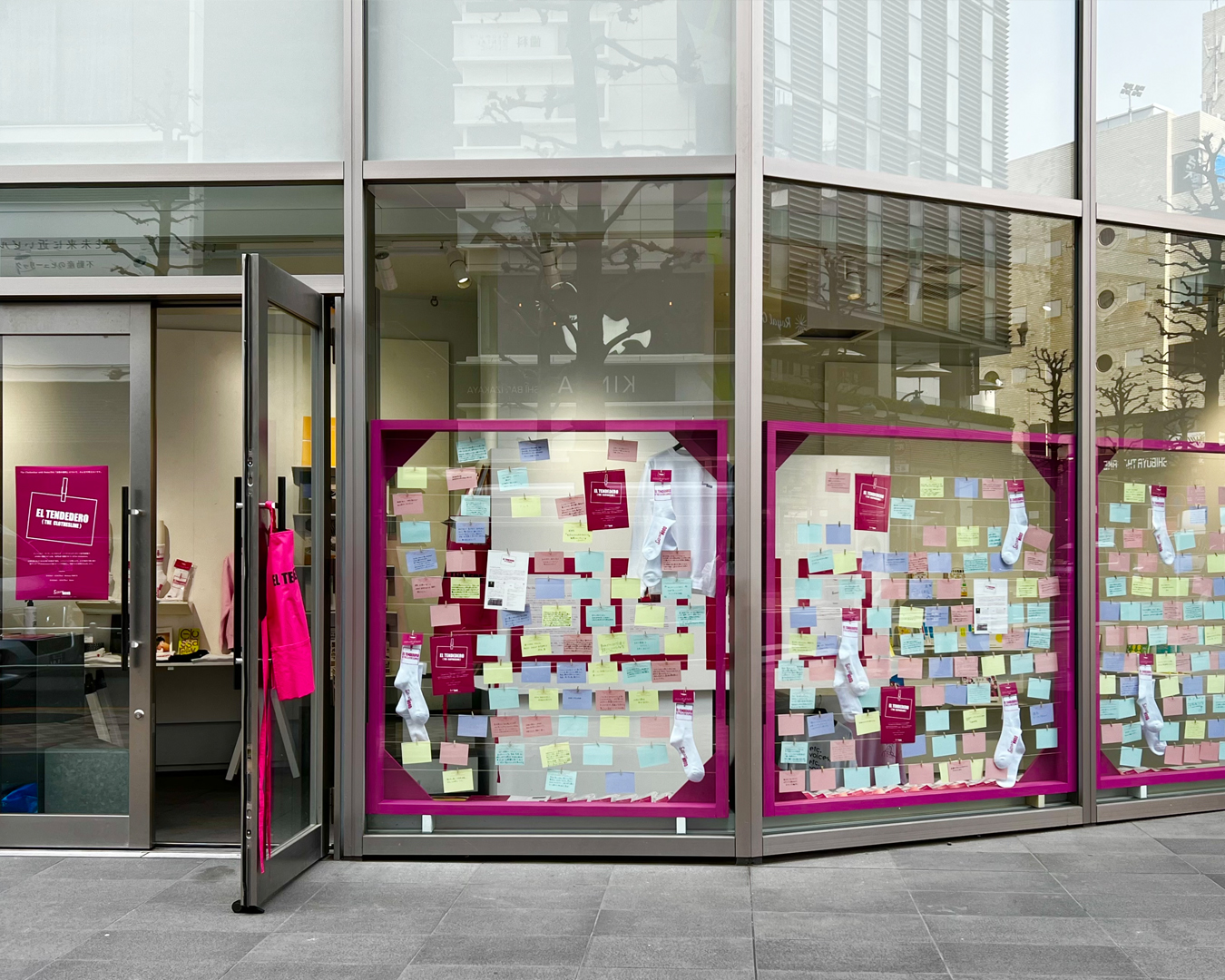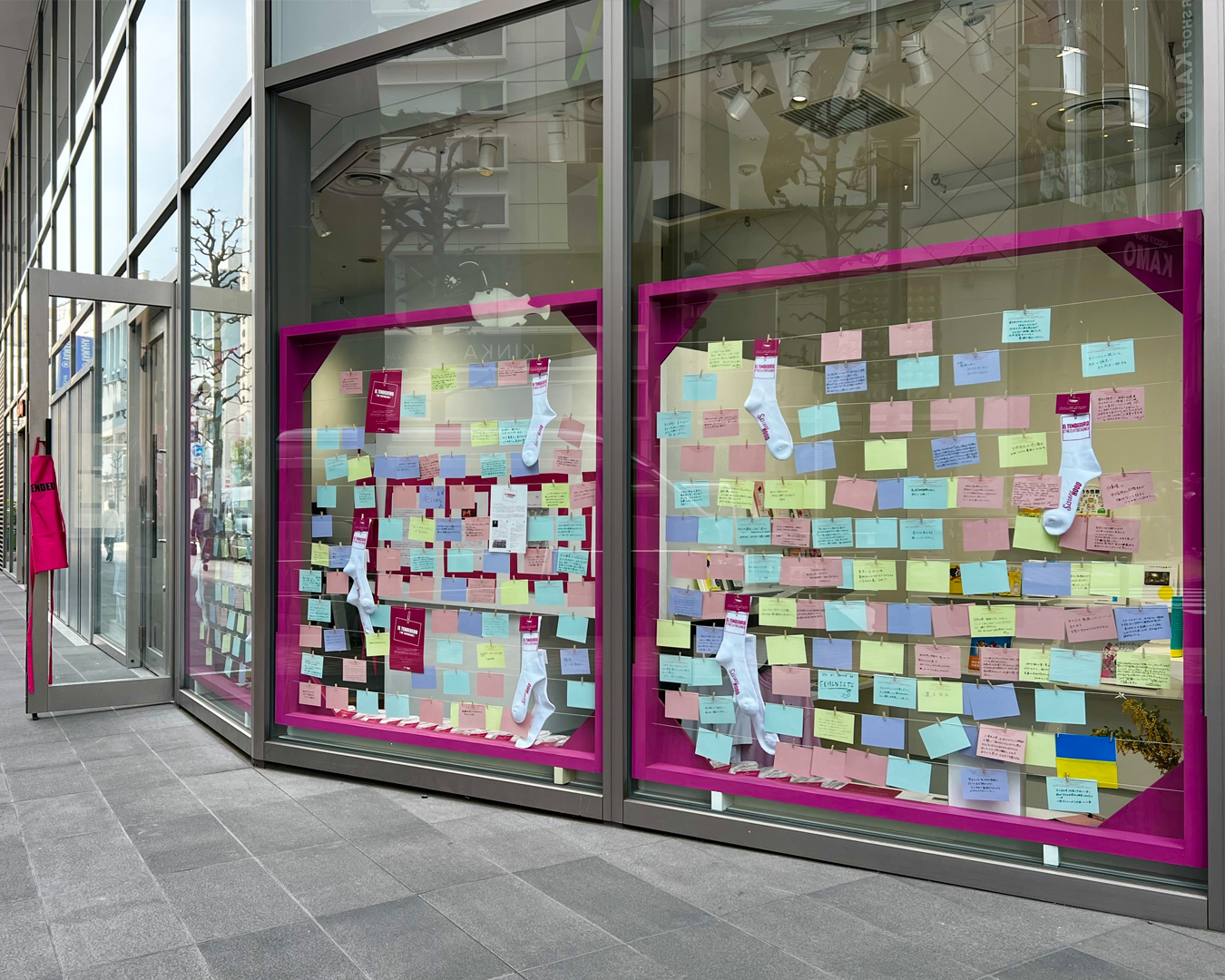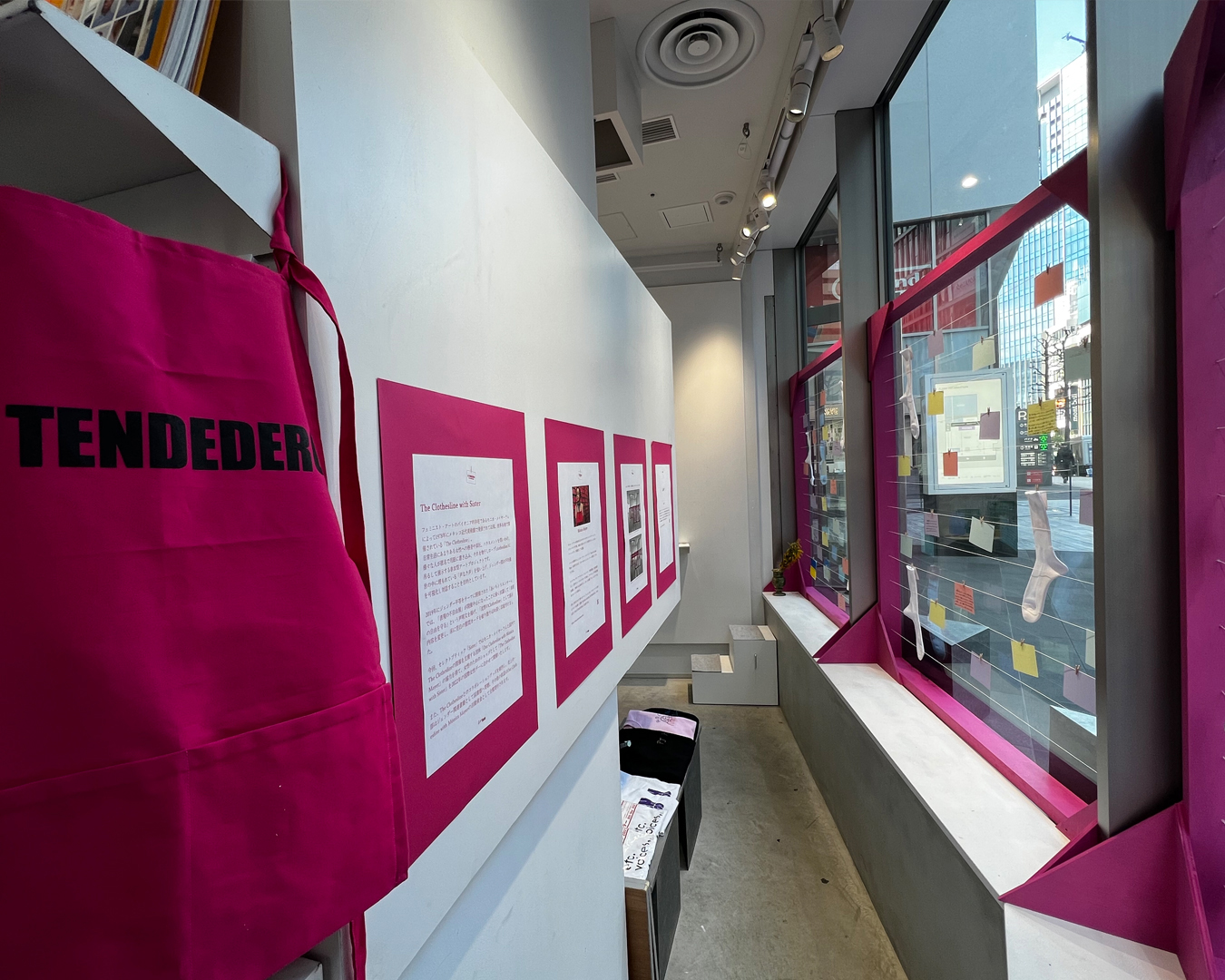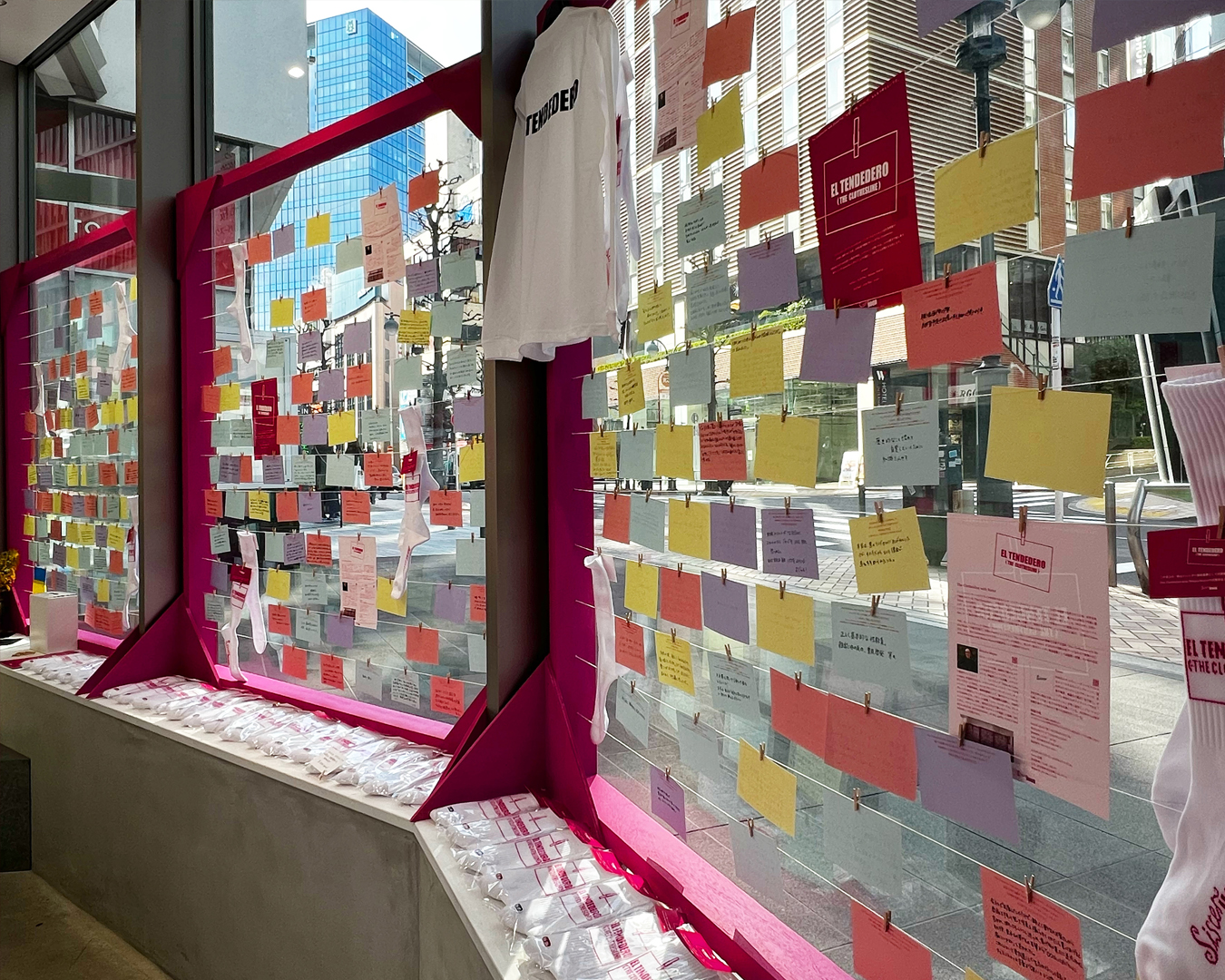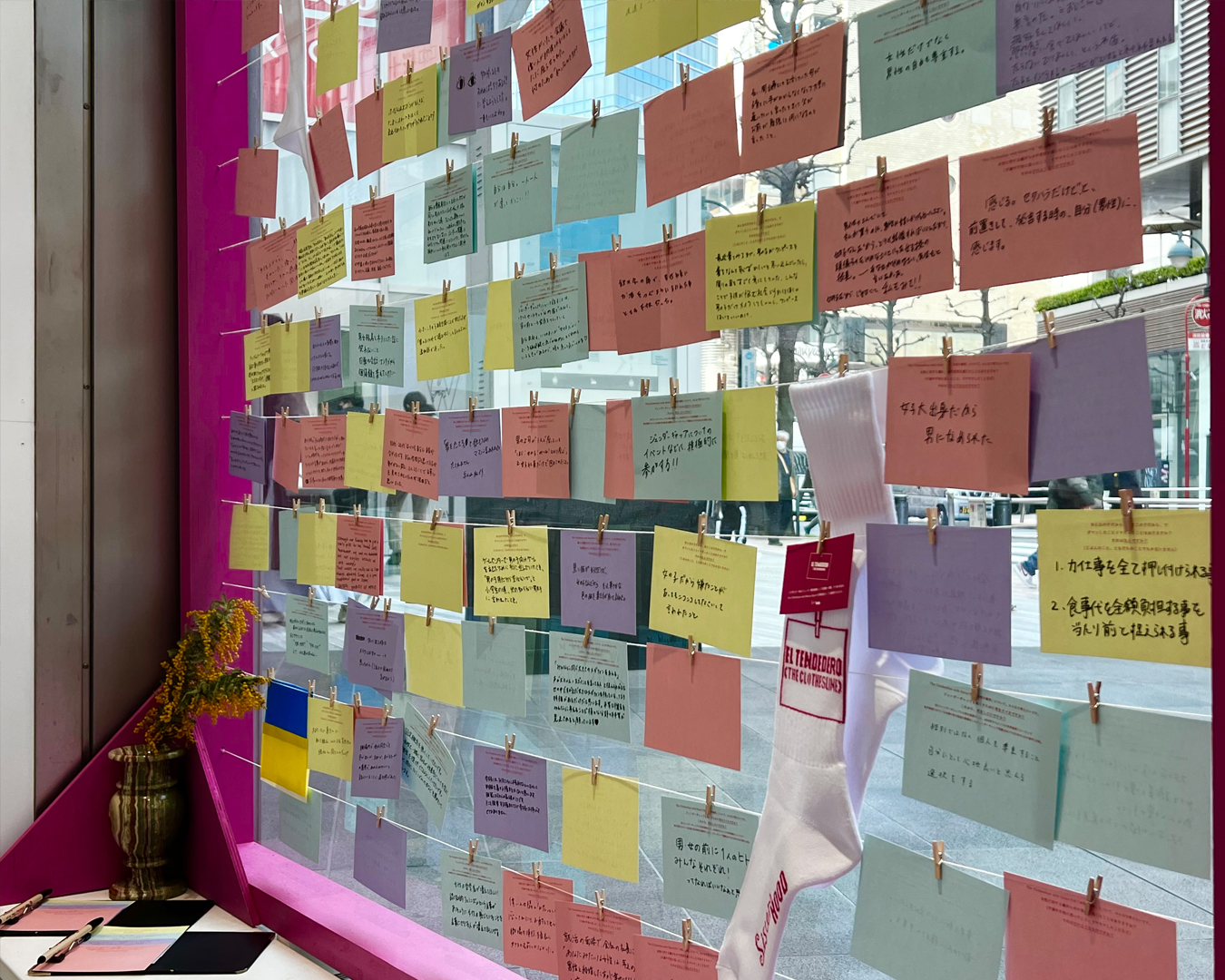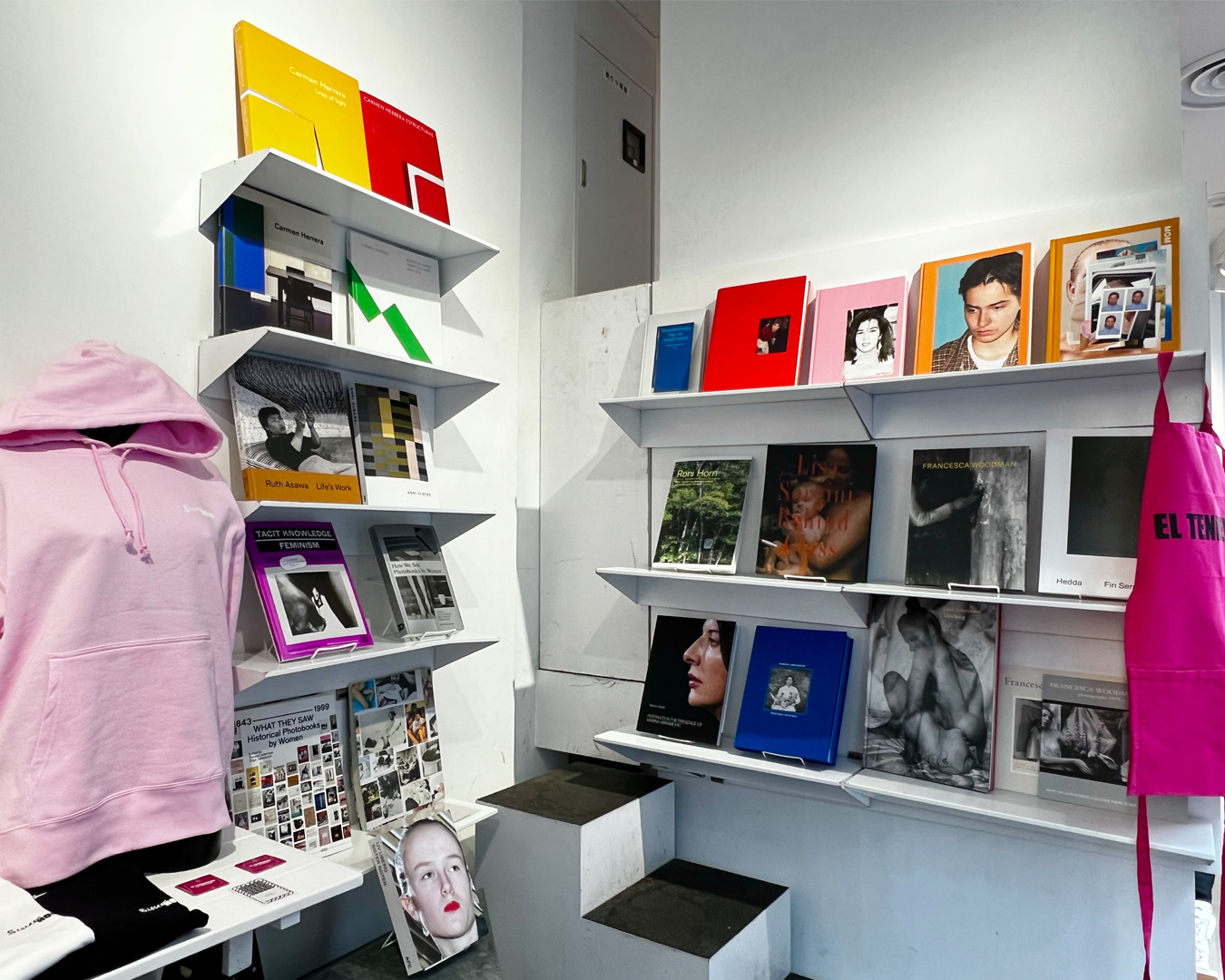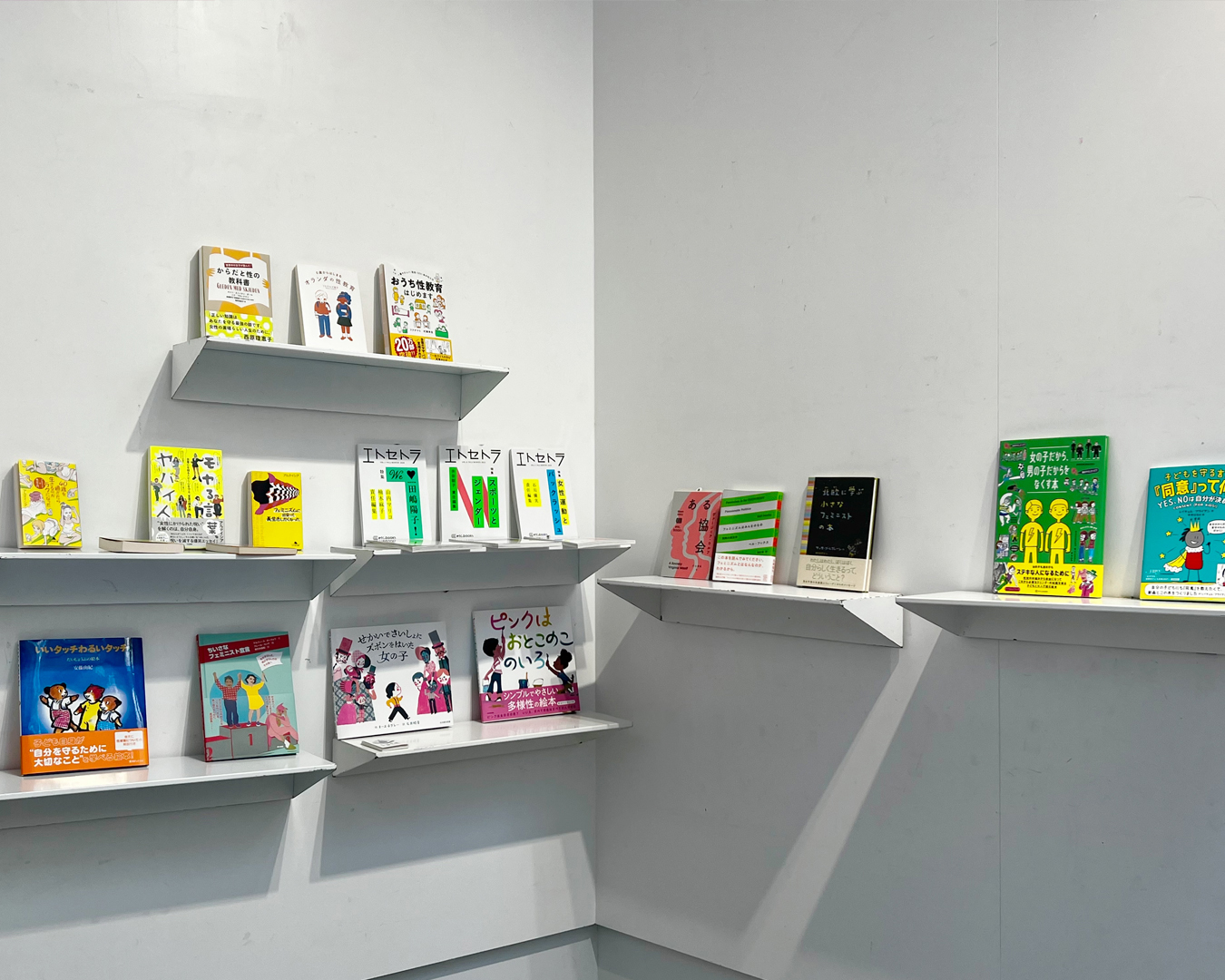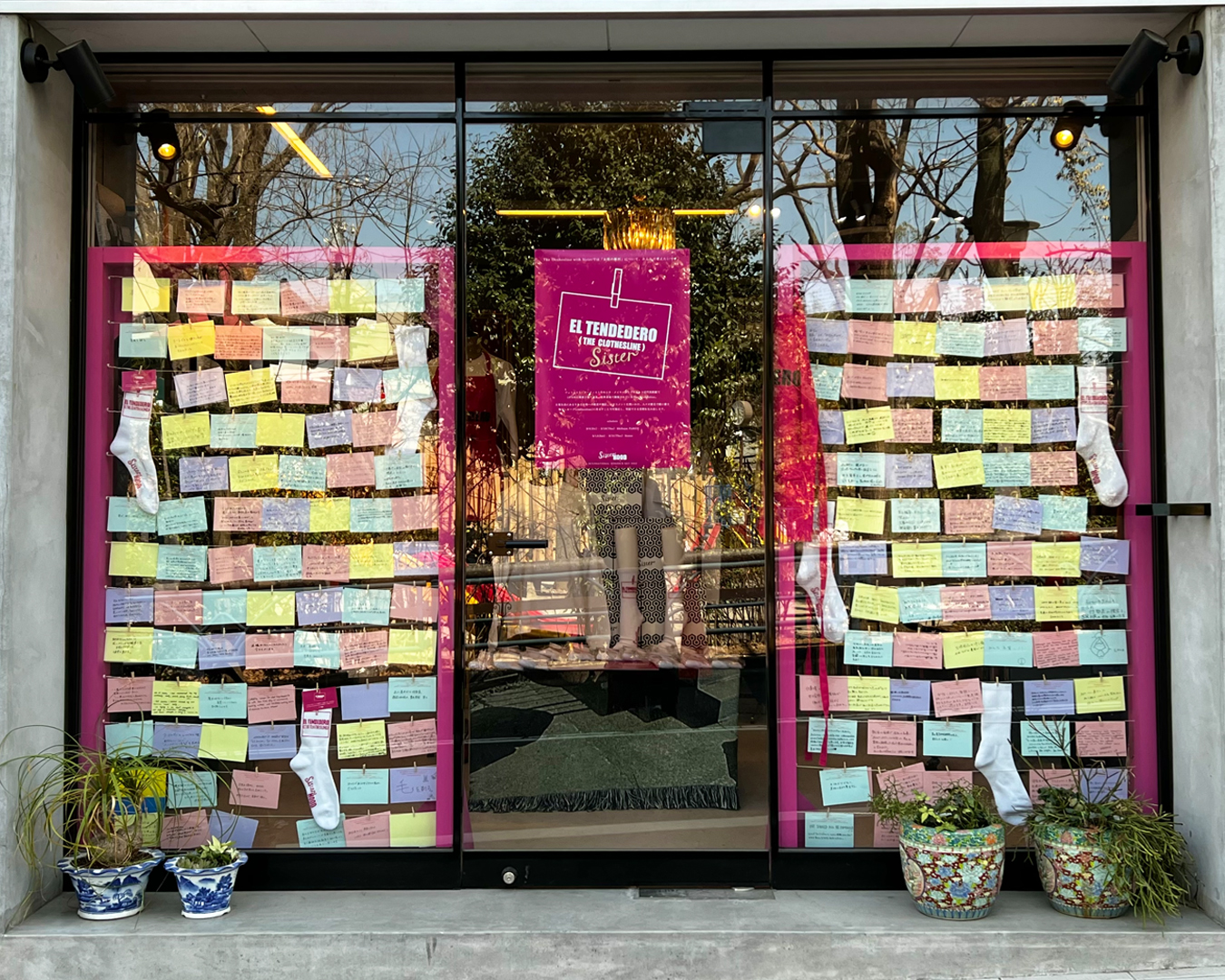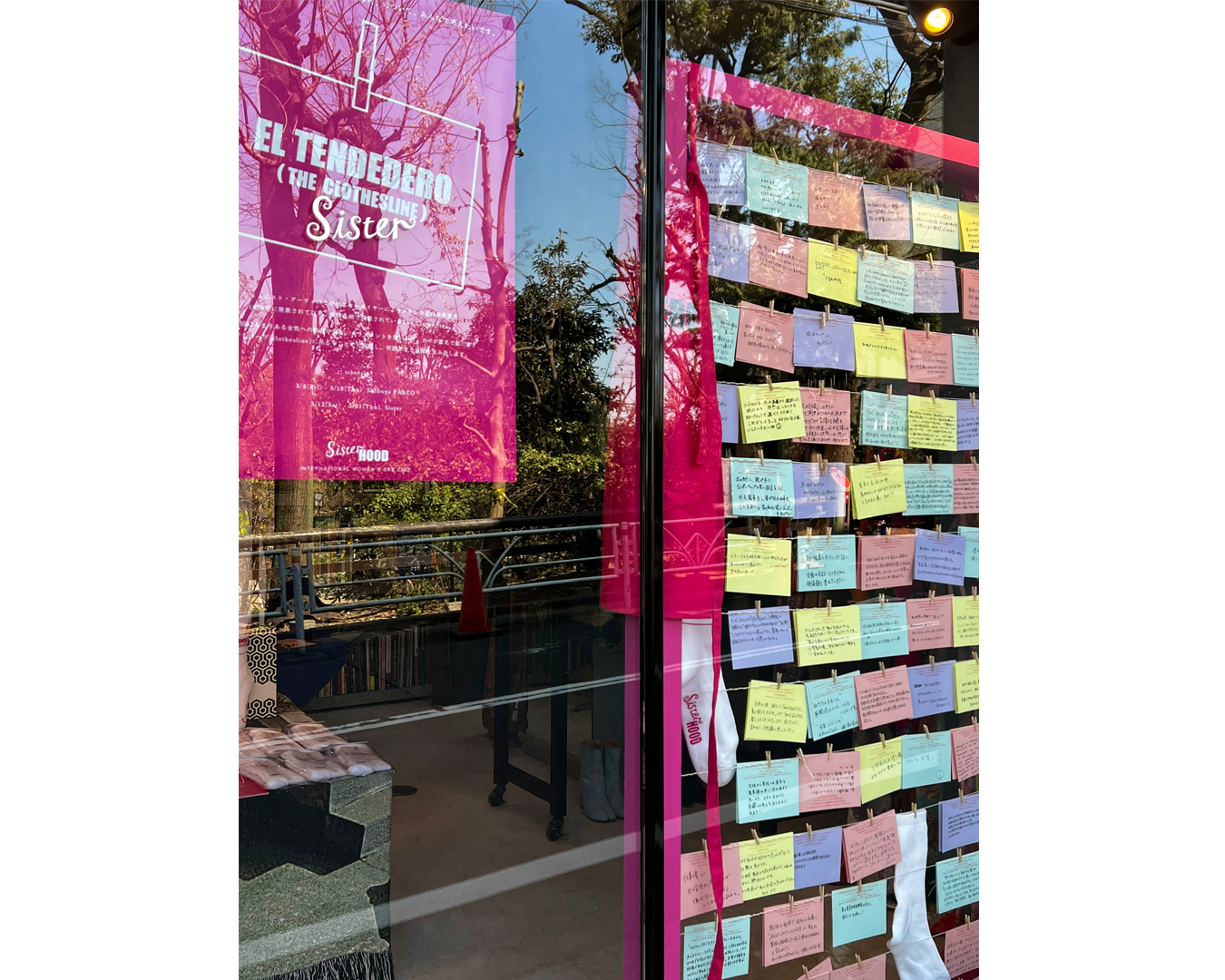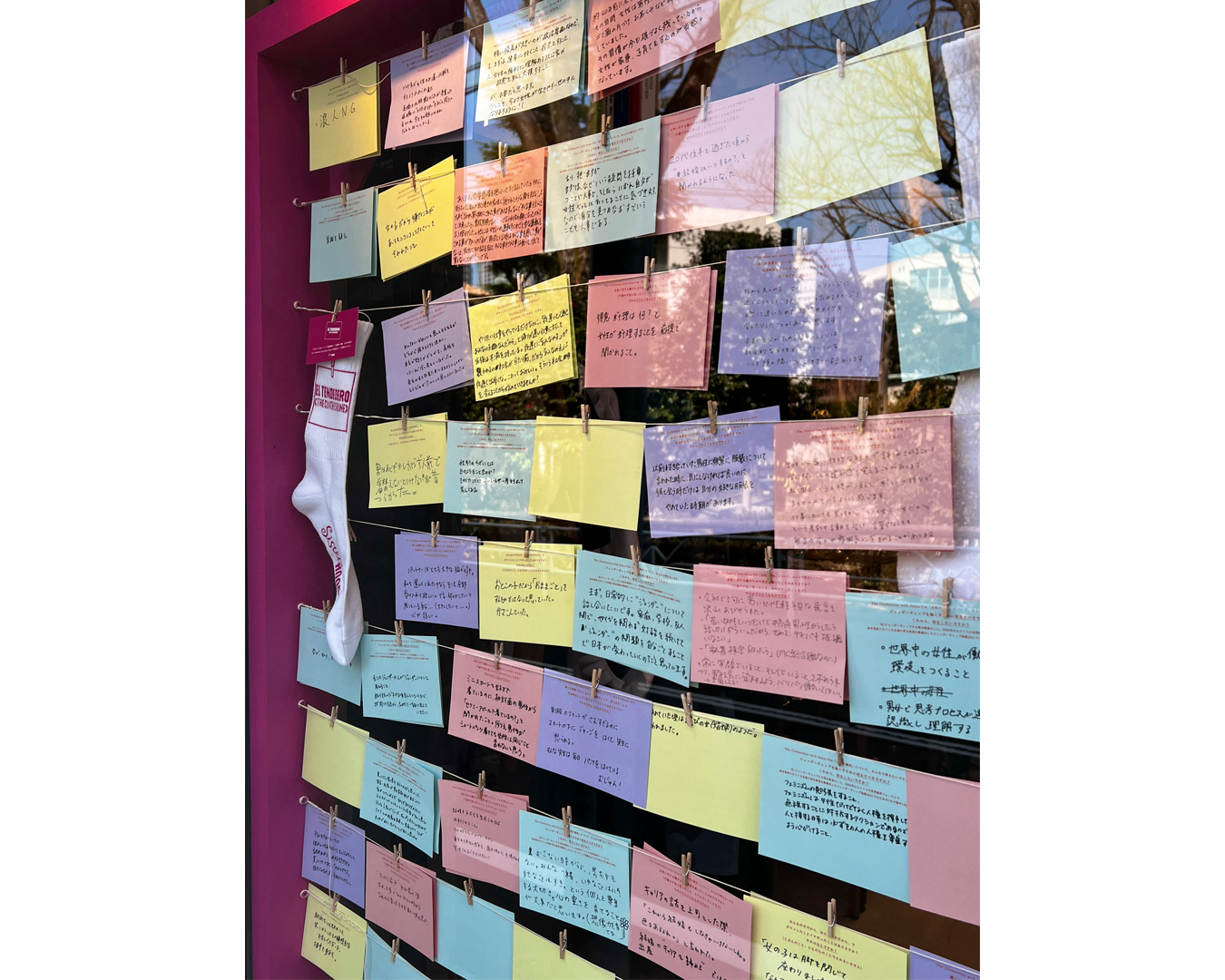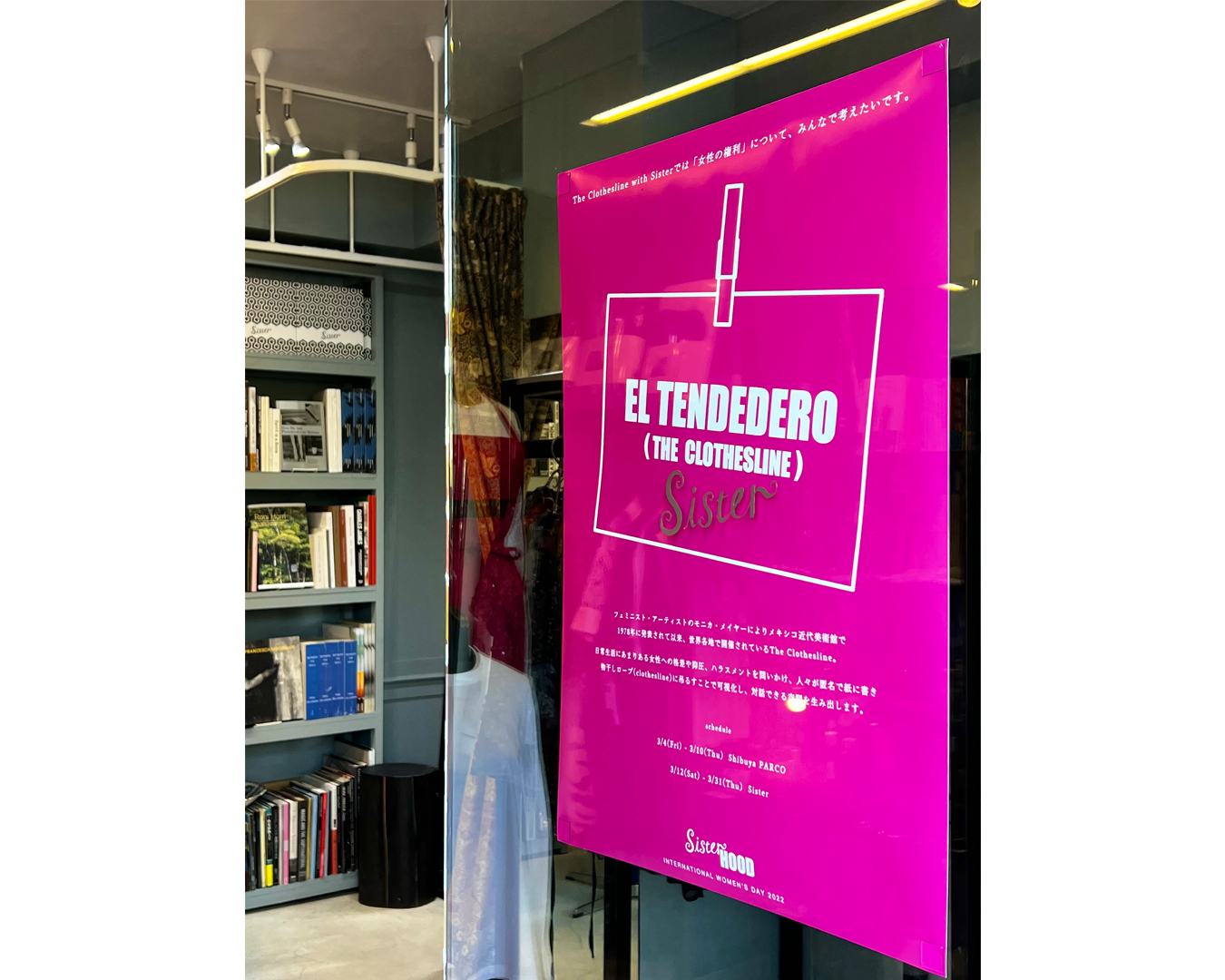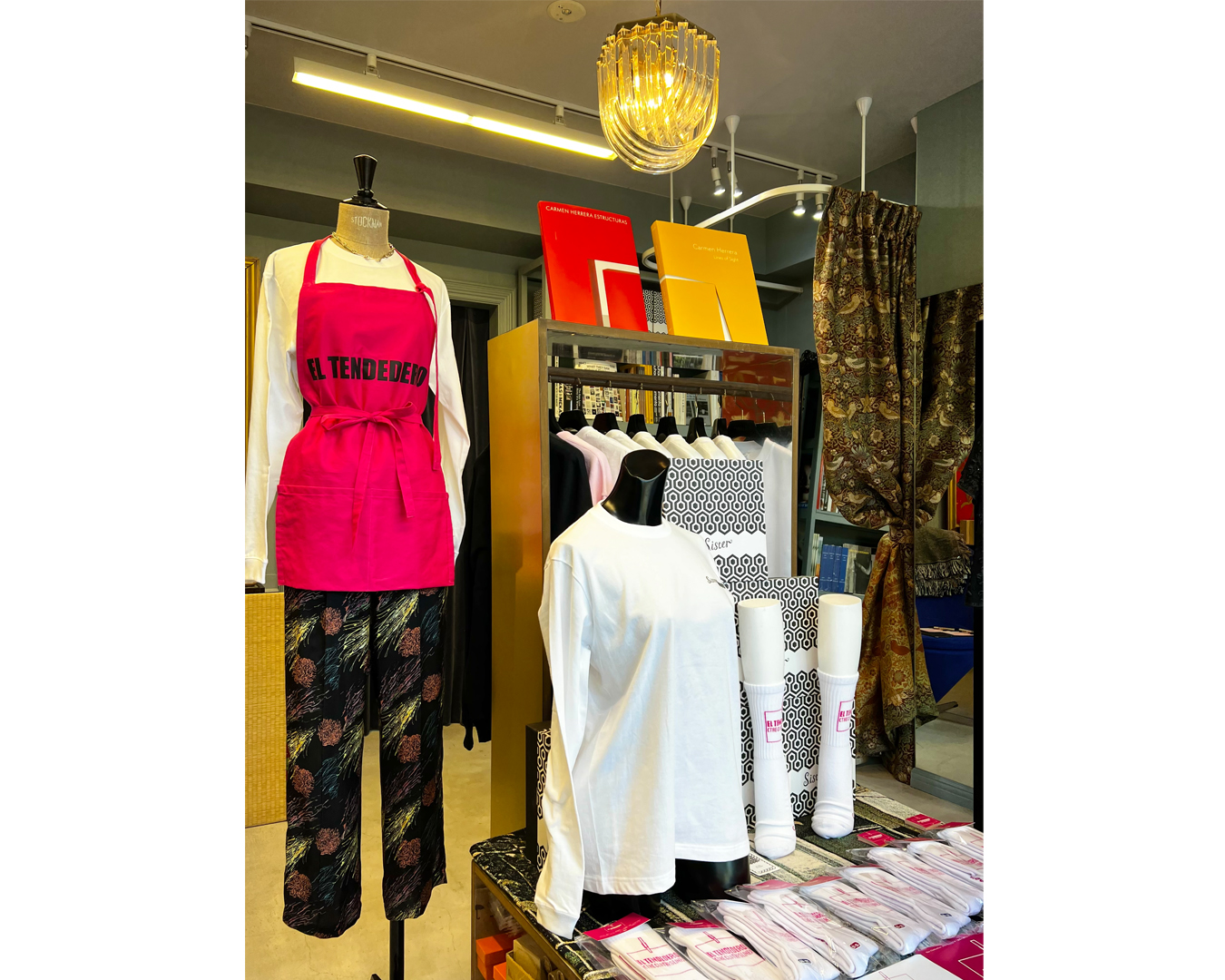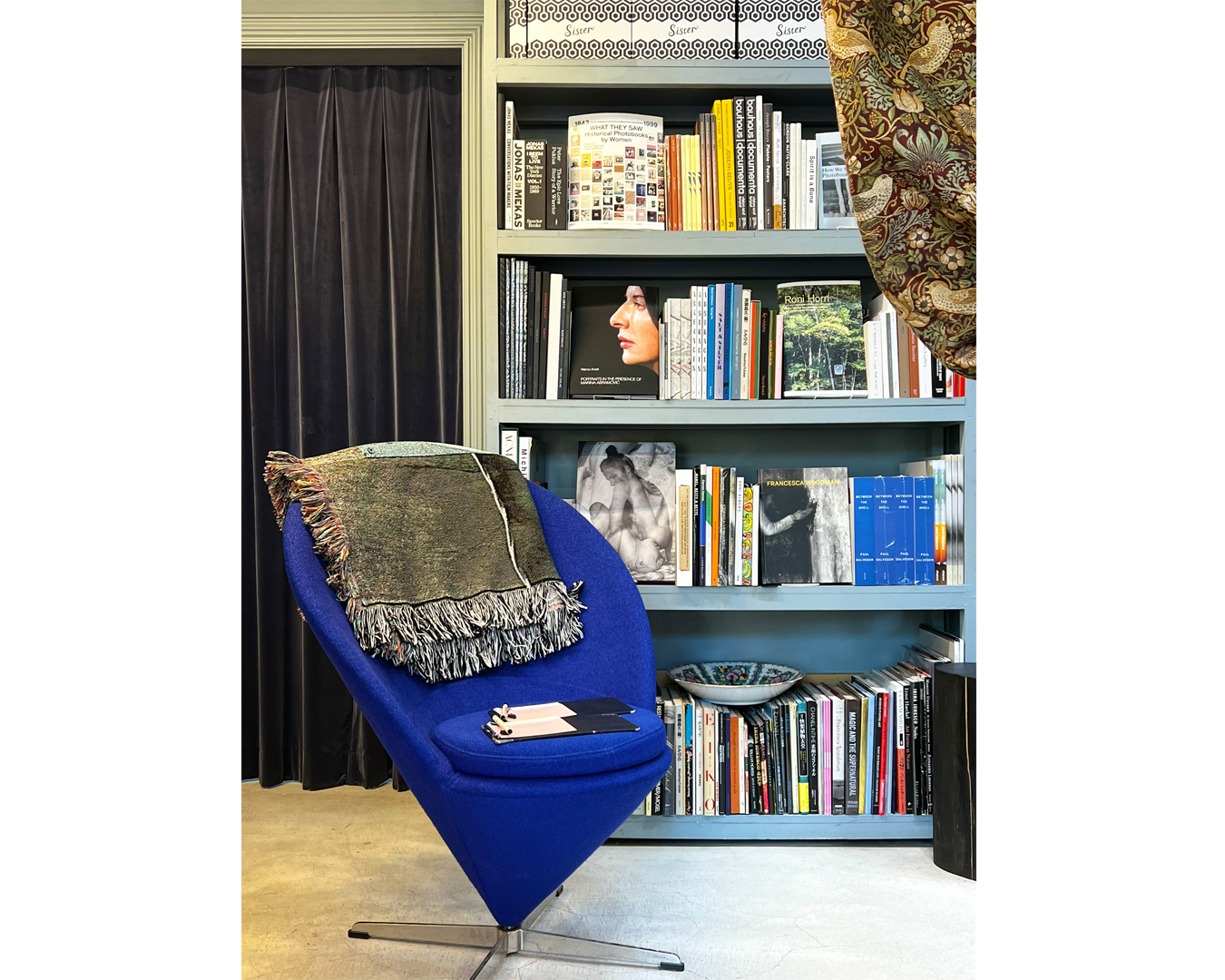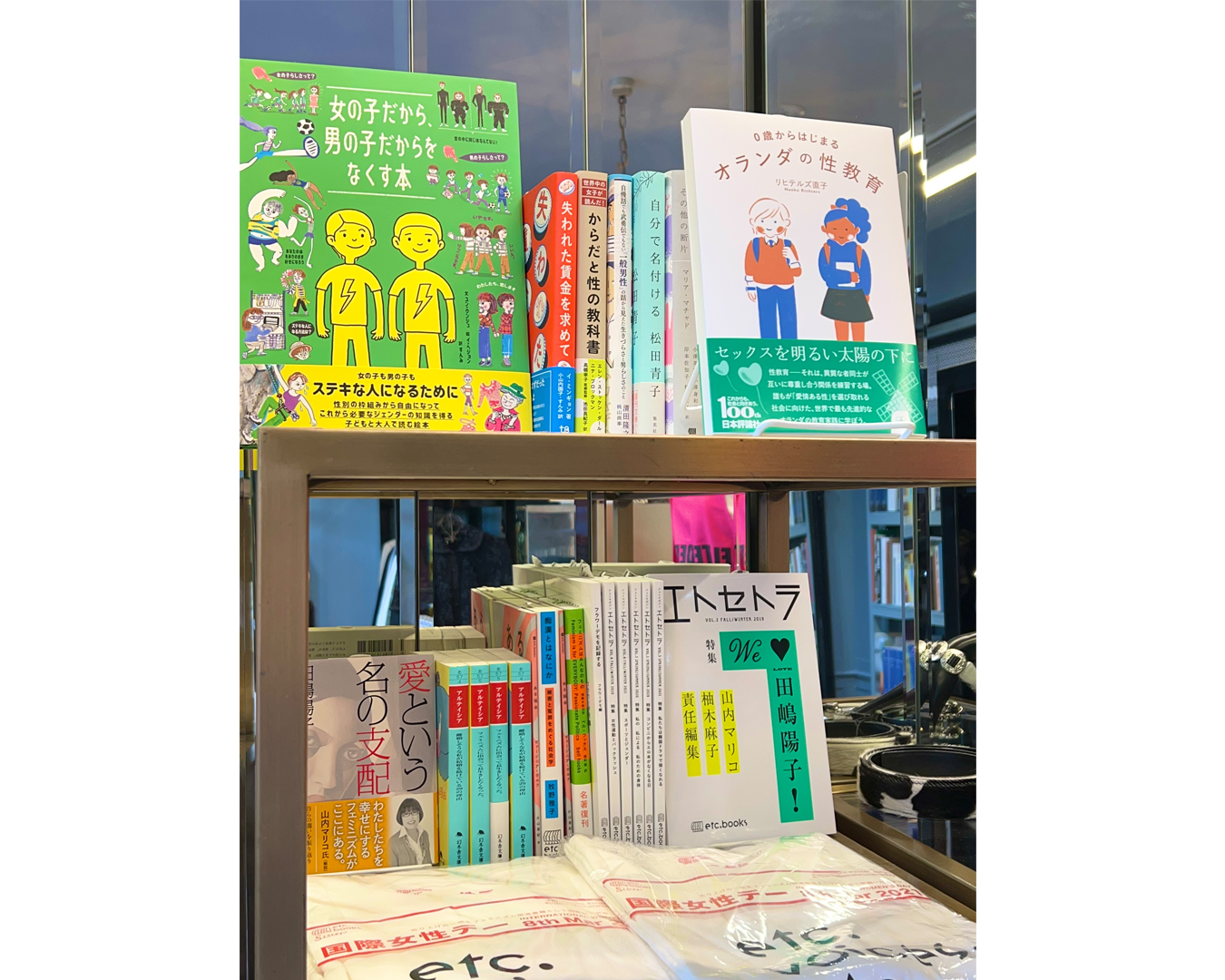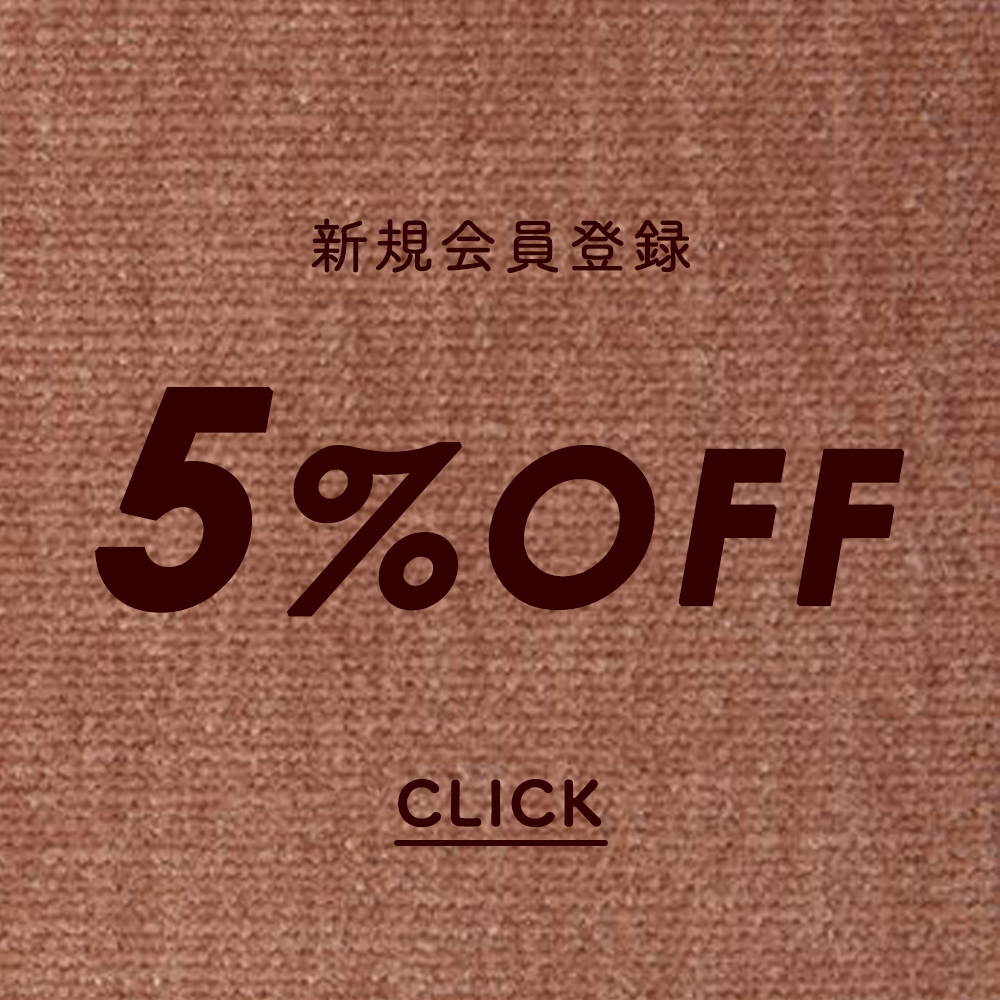INTERNATIONAL WOMEN’S DAY 2022
The Clothesline with Sister
2022年3月4日(金)-2022年3月10日(木)
渋谷PARCO 1F “COMINGSOON”
2022年3月12日(土)-2022年3月31日(木)
Sister店舗
フェミニスト・アートのパイオニア的存在であるモニカ・メイヤーさんによって1978年に
メキシコ近代美術館で発表されて以来、世界各地で開催されている「The Clothesline」。
日常生活にあまりある女性への格差や抑圧、ハラスメントを問いかけ、様々な人が匿名で用紙に書き込み、
それを物干しロープ(clothesline)に吊るして展示する参加型アートプロジェクトです。
世の中に埋もれている「声なき声」を拾い上げ、ジェンダー間の不均衡を可視化し対話することを目的としています。
2019年にジェンダー平等をテーマに開催された「あいちトリエンナーレ」では、
「表現の不自由展」が開催中止になったことに強く抗議して「表現の自由を守る」という声明文を掲げ、「沈黙のClothesline」として展示内容を変更し、
床に空白の質問カードを破り散りばめ深く印象付けました。
今回、セレクトブティック「Sister」ではモニカ・メイヤーさんと国内でThe Clotheslineの開催を支援する団体「Our Clothesline with Mónica Mayer」の協力を得て、
女性のためのショップとして「The Clothesline with Sister」を2022年の国際女性デーに合わせて開催いたします。
また、The Clotheslineとのコラボレーショングッズを制作し、
売上の一部はジェンダー関連書籍として図書館へ寄贈、
その他の収益はOur Clothesline with Mónica Mayerの活動資金として全額寄付されます。
Mónica Mayer

モニカ・メイヤーは1954年生まれのメキシコのフェミニストアーティスト。
パフォーマンスや写真、絵画など様々なメディアを使用するフェミニズム・アーティストで、評論家としても活躍。
コンセプチュアル・アーティスト、キュレーター、美術評論家、美術理論家として、様々なフォーラムやグループに参加し、
ワークショップや集団運動を組織してきた。
1988年から2008年まで、メキシコの新聞「エル・ユニバーサル」のコラムニストを務めた。
https://www.pintomiraya.com/
Our Clothesline with Mónica Mayer

メキシコのフェミニスト・アーティスト、モニカ・メイヤー の作品《The Clothesline》を
元に、同プロジェクトを日本各 地で展開するグループ。
あいちトリエンナーレ2019の企画、 モニカ・メイヤーのワークショップに参加し、
その後も日本 各地で本企画の開催サポートを行っている。
https://www.ourclothesline.com/
Sister

2008年にオープン。レディースアパレルをメインとするセレクトブティック。
国内外からセレクトしたデザイナーズ、古着や雑貨、書籍など幅広く取り扱う。オープン当時からのマニフェストである「女性本来の意志を持ったスタイル」を更に追求し、
ファッションを通してより良く生きる女性を応援している。
2019年からは毎年国際女性デーに合わせて様々な企画を行っている。
https://sister-tokyo.com/
The Clothesline with Sister
からの問いかけ
The Clotheslineを開催するにあたり、Sister独自の質問を4つ考えました。
期間中、会場では皆さんと一緒に女性の権利について考え、対話をしていきたいです。
質問: 女性に対する嫌がらせや差別を感じたことはありますか?(不満や不快に思ったこと、モヤモヤしたことなど)それはどのようなものですか?
質問: 誰にも強要されていないのに服装やメイク、見た目のことで社会的女らしさに応えようとしたことはありますか?それはどのようなものですか?
質問: ジェンダーギャップを無くすために何をすべきですか?これから、何をしたいですか?
注)ジェンダーギャップとは男女格差のこと。2006年からスイスの世界経済フォーラムで
毎年発表されている各国の男女格差を数値化したジェンダーギャップ指数2021では日本は156カ国中120位。
質問: おんなの子だから、おとこの子だから、で、ガマンしたことイヤだったことはありますか?それはなんですか?
(じぶんのこと、ともだちのことでもかまいません)
こちらのメールフォームから上記の質問に対する回答を受け付けております。
4つの質問のうち、答えたいと思ったものにだけ回答してください。
匿名性を保つために回答の中には個人が特定される情報を含まないようお願いします。
回答は代筆にて、期間中に展示いたします。
 The Clothesline/あいちトリエンナーレ
The Clothesline/あいちトリエンナーレ
渋谷PARCO
2022年3月4日(金)-2022年3月10日(木)
Sister店舗
2022年3月12日(土)-2022年5月8日(日)
開催日程
2022年3月4日(金)-2022年3月10日(木)
渋谷PARCO 1F "COMINGSOON"
※期間中はどなたでも無料で参加頂けます。
営業時間; 11:00 - 20:00
住所: 東京都渋谷区宇田川町15-1
電話番号: 03-5412-1811
https://shibuya.parco.jp/
2022年3月12日(土)-2022年3月31日(木)
Sister店舗
営業時間; 12:00 - 20:00
住所: 東京都渋谷区松濤2-13-10 1F
電話番号: 03-6407-1285
https://sister-tokyo.com/
期間中は、主に国外のアートブックを多数取り扱う「twelvebooks」から本企画に合わせた作品集を選書、
そして昨年も図書館への寄贈ラインナップの選書を担当した三重県九鬼町にある書店「トンガ坂文庫」からジェンダー関連書籍の販売も行います。
The Clothesline with Sister
コラボレーショングッズ
-

The Clothesline with Sister Hoodie PNK/WHT ¥8,800(税込)
-

The Clothesline with Sister L/S T-shirt BLK/WHT ¥5,500(税込)
-

The Clothesline with Sister L/S T-shirt WHT/BLK ¥5,500(税込)
-
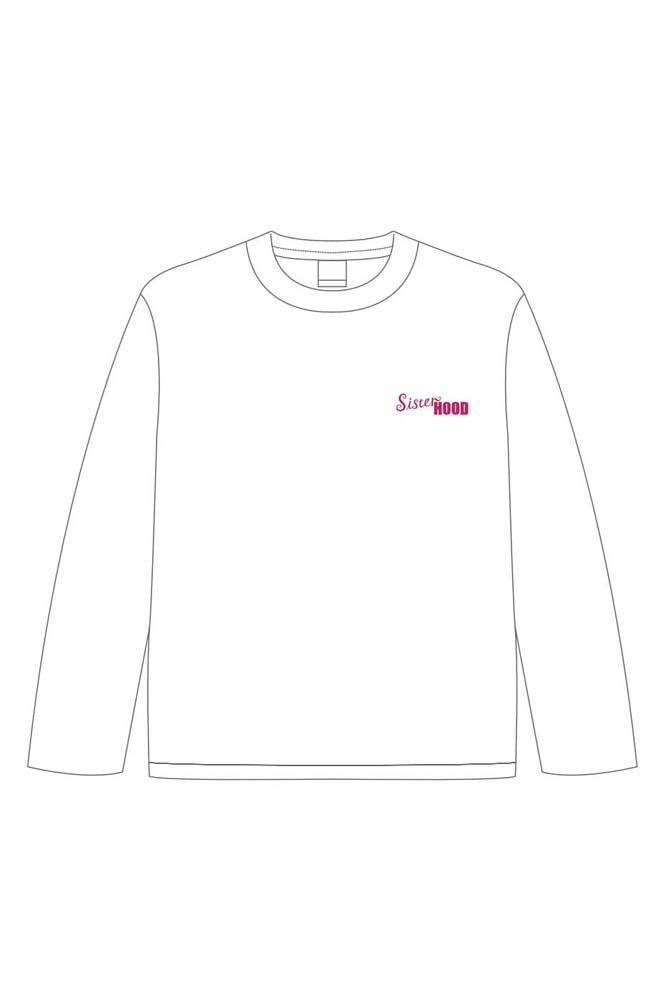
The Clothesline with Sister L/S T-shirt WHT/PNK ¥5,500(税込)
-
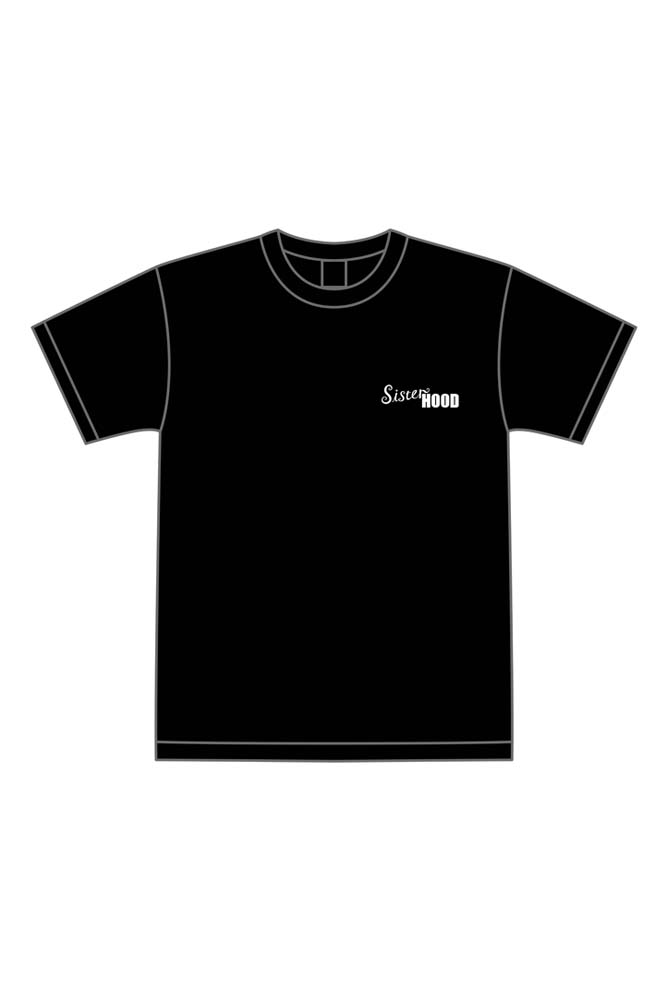
The Clothesline with Sister T-shirt BLK/WHT ¥3,850(税込)
-
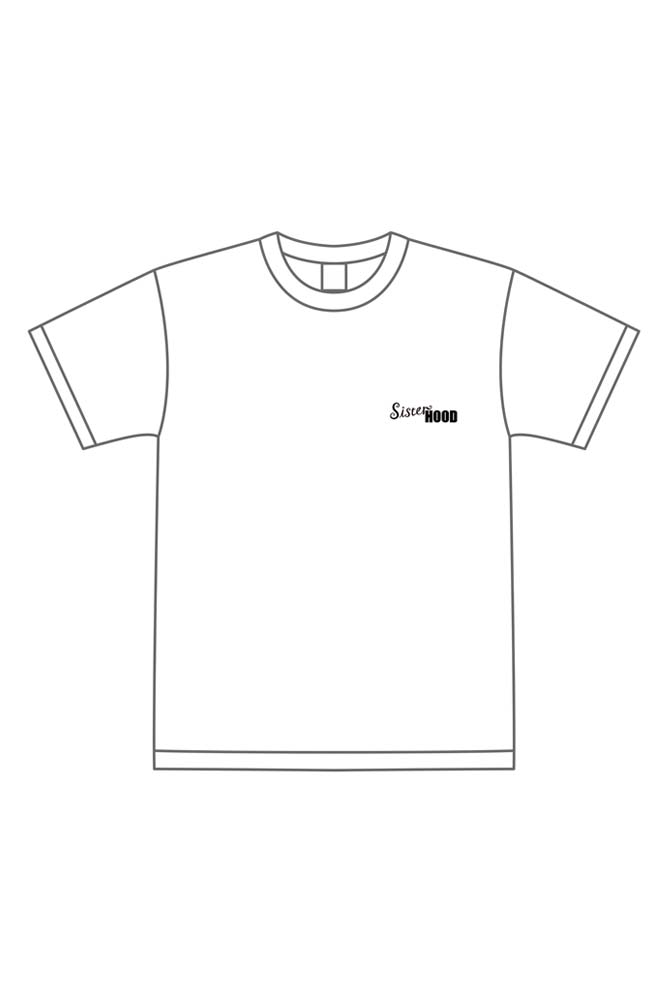
The Clothesline with Sister T-shirt WHT/BK ¥3,850(税込)
-
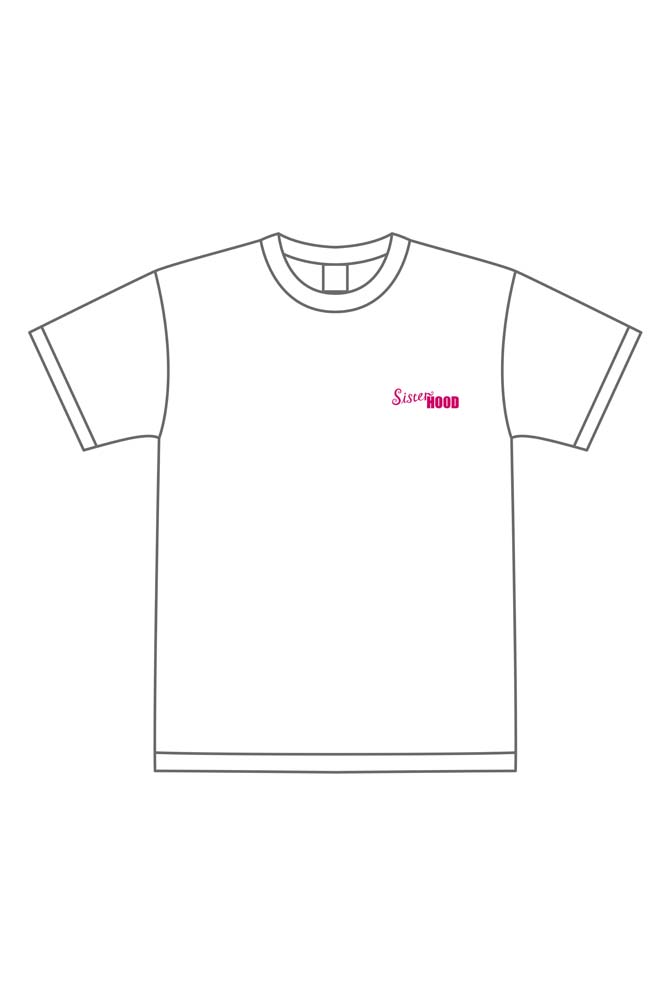
The Clothesline with Sister T-shirt WHT/PNK ¥3,850(税込)
-
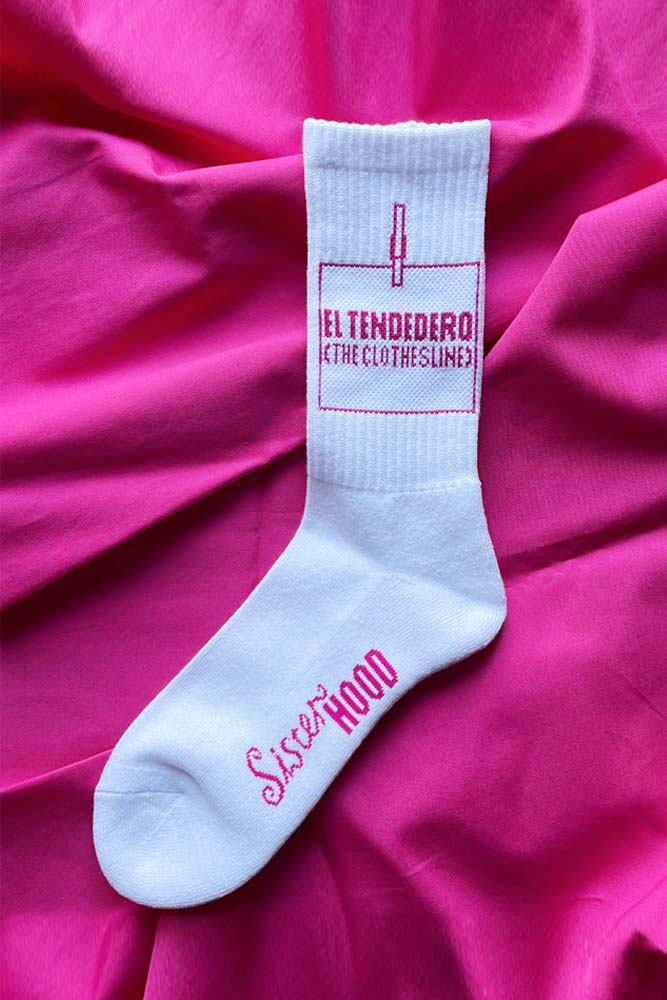
Socks ¥1,980(税込)
-
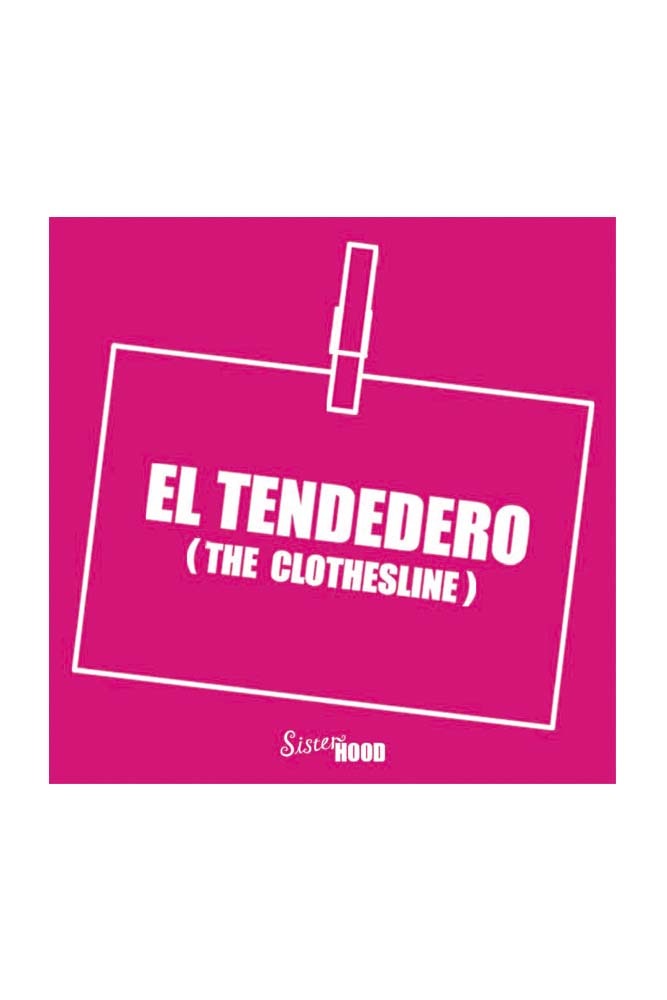
Sticker ¥330(税込)
Interview with Mónica Mayer
モニカ・メイヤーさんにお話を伺いました。

2022.3.3
長尾(以下N):ありがとうございます。よろしくお願いします。
早速モニカさんにお聞きしたいことや今回私がどういった想いで開催するかということをお話しさせていただきたいと思います。
まず初めに、私がモニカさんの作品を知ったのが2019年のあいちトリエンナーレでのことでした。開催前から芸術監督の津田さんの発言に注目していて、過去にゲリラガールズの活動とか美術関係者の方の著書を読んで美術界におけるジェンダーギャップにも元々すごく関心があったんです。
ヴェネチアビエンナーレで124年かかった男女平等を津田さんの回で達成したいという想いにも、とてもすごいことだなと開催前から思っていて。
あいちトリエンナーレ開催にあたって津田さんのお考えや美術館におけるジェンダーギャップについてモニカさん自身はどういうお考えで参加されたのかをお伺いしたいです。
Mónica Mayer(以下M):アート界のジェンダー差別はすごく根深くて、また幅広いものだと思っています。
それは誰がアートに参加できるのか、誰がアートを作れるのか、また何がアートとして認識されているのかという問題にも関わっていきます。
そして女性がやってきたことは伝統的に歴史的にもアートとして認識されてこなかったものです。
それによって誰が何を失うかというと、社会全体がそれによって大きなロスを抱えています。
なぜかと言うと人口の約半分の人たちのクリエイティビティから利益を得られない、クリエイティビティを見られないことになっているからです。
特にフェミニストアートというものはすごく力強くて、また知的なもので凄く楽しいアートだと思っています。
あいちトリエンナーレでそういうジェンダーギャップを埋めようとする取り組みがあったことはすごくいいことだと思いましたし、またすごく驚いていました。
後にあった検閲の問題も女性問題も関係していると思います。
かなり厳しい状況の中、その問題を解決するためにすごくチームはよく動いたと思います。
残念ながら、私の個人的な意見なんですけど、こういう検閲の問題があったことによってジェンダーギャップを埋めるという取り組みの方が少し注目を失われてしまったかなとも感じます。
N:ありがとうございます。そうですね。
私もモニカさんがおっしゃった通り人口の半分のクリエイティビティが見られないというのは、そもそも男性のアーティストばかりが注目されてきたということ自体がとても不自然だと思いますし、現代になってようやく通常の状態になったのではないかという風に感じていて。
あいちトリエンナーレ以降その影響も多くあったと思うんですけれど、去年だと森美術館の方で70代以上の16人の女性アーティストがフィーチャーされた形の展覧会が開催されたり、今年も金沢21世紀美術館でフェミニズムズ展というのが開催されるとか、ジェンダーの問題に関心を寄せた展覧会が各地で開催されているって事に私自身もすごく驚きと嬉しい気持ちがあります。
M:メキシコシティの大きな美術館3つでもフェミニズムの展示が今、開催されています。
特に若い世代がすごく積極的に動いています。
N:そうですね。日本も同様にSNSをよく使うインターネットネイティブって言われてる世代が特にそういうジェンダー問題に関心が高くてそういった投稿してる方も見かけますし、より手軽に自分たちの考えを発信できている時代に入ったんだなという風に考えています。
M:メキシコもそうですね。問題もありますが・・・。
メキシコではフェミニストグループ同士でちょっと確執があったり、いざこざがあったりします。
私は70年代からフェミニズム運動にかかわっていますが、当時から結構大きな議論はなされていたんですけど、特にSNSの登場で更にそれが強くなったと言うか盛り上がっているという言い方もあるけど、かなりその厳しい状況にもなっているという感じがします。
N:それは日本だとそもそもジェンダーに対する議論というのがすごく遅れている印象が私の中ではあります。「フェミニズム」という言葉自体が共通認識されてきたのもここ数年というか、ハリウッドで起きた#metoo運動のあと、日本で#metooした方達の活動があって、最近になって本当に加熱しているという感じがあるんですけれども。
まだそのフェミニズムというものに対してグラデーションがそこまで・・・
これから多分出てくると思うんですけど、その思想的な偏りみたいなものが、まだ二極化されてないと思います。
私自身はそういう価値観をこれから形成していく上で議論されていくとか同じフェミニズムという中にあっても違った思想を持っている人たちが話し合っていくというのは、悪いことじゃないというふうに思っているので、日本もこれから何年かしたらそういう風なことになっていくんじゃないかなと考えていますね。
M:とても良い段階に来ていると思います。
N:ありがとうございます。
ちょっとまた話が少し戻りますが、あいちトリエンナーレのことをモニカさんにお伺いしたいです。
私があいちトリエンナーレに足を運んだ時には、さっきお伝えした表現の不自由展の開催中止後で既に多くのアーティストが開催予定の展示方法とは違った形でそれぞれの意思表明をされていたんですけれども、私はその中で特にモニカさんの作品が心に残っていました。
私はあいちトリエンナーレでモニカさんの作品を初めて見たのですが、当初予定していた作品を見ていなかったんですけど、バラバラにされた空虚な空間の方がより強く私の心に響いて。
その時モニカさんがやられていた「沈黙」ということが一番の意思表示なのだなという風に感じ取れました。
M:ありがとうございます。あいちトリエンナーレのThe Clotheslineは私の一番のお気に入りのひとつで、その話をする時はそのミュータント…変化系のThe Clotheslineと呼んでいます。
その何でこの変化が気に入っているかというと、まずあいちトリエンナーレで一度閉鎖して、で
そこから別のアーティストがその手法を使って表現してくれて「表現の自由」に関して、声を上げてくれた。
そしてそこからOur Clothesline with Mónica Mayerという取り組みが始まって、いろんな大学とかにも移動していって、今こうしてあなたの場所にも来ていて。
そういう変化がすごく気に入っています。
通常ならば私がThe Clotheslineを、例えば美術館だったり大学で展示してそこから学生さんが再現してくれたりと1〜2回で終わってしまうことなんです。
日本特有の状況なのが、特にOur Clothesline with Mónica Mayerの協力があったからなんですけど、いろんなところで常に開催されていくという形は初めてでうれしいです。
N:なるほど。先ほどモニカさんがおっしゃった表現の不自由展の別のアーティストがそれを継承してやっていったというお話があったと思うんですけれど。
私もモニカさんの作品を見てすごく強いメッセージを受けた後に、その会場を後にして表現の不自由展の行われるべきだった会場の前に行ったときに、私はその時誰がそれをやっていたかというのを全然知らない状態で、自発的にクロスラインがここでも発生しているってことに凄く感動しました。
その作品とそこの会場はちょっと遠かったんですけれども、一体感というか凄く強いメッセージを感じて。
特に一人一人の声が可視化されるということが本当に政治や権力押さえつけることのできない
あの人々の生の声なんだなというところにも本当に感動しました。
M:私は他の日本のアーティストさんがこのThe Clotheslineの手法を使って表現の不自由展の前でやりたいっておっしゃっていた時は凄く感動しました。
とてもそれは適したやり方だなと思いました。
このあいちトリエンナーレのThe Clotheslineから学んだことはこのThe Clotheslineという作品はどの文脈であろうと、その文脈その場所その状況に合わせて反応することがすごく大事なんだなというのを学びました。
N:ありがとうございます。
そもそもモニカさんがThe Clotheslineをやられた経緯とか、またお聞きしたいなという風に思っているんですけれども。
私があいちトリエンナーレですごく印象に残っていたという経緯があって今回Our Clothesline with Mónica Mayerのモモさんの方にご連絡させていただいてSisterの国際女性デーに合わせてやりたいというお話をさせていただいたんです。
モニカさんがやってきたこのThe Clotheslineという作品自体が40年も前からやられていた
ことに私はすごく驚いたんですけれども、一人一人の声を張り出して可視化していくという手法がとても民主主義的でまさに今の時代にフィットしている表現方法なんじゃないかなという風に思っていて。
私は作品を見た時に本当にすごくスッと入ってきましたし、この手法でいろんな方の声を私自身聞いてみたいなという風に考えたんです。
モニカさん自身のこのThe Clotheslineに対する思いを伺いたいです。
M:すごく私もすごいことだなと思っています。
なぜなら一番最初にこのクロスラインを開催した時、まさかここまで長くやるとは思いませんでした。
これはアーティストにとってすごく夢のような話だと思います。
自分の作品がこんなにも複数回開催されて、いろんな各地で開催されて…メキシコでは小学校とか学校などでもう百回以上やっています。
この学校で行われる時は#metooと少し関連してその被害を告発するために使われていたり、また教育目的で先生が生徒さん達とコミュニケーションとって教育目的に使われたり。
なので、この作品は社会活動、アクティビズムでもあり、アートの文脈で使われていたり、また教育手法として使われていることなのですごくそれは嬉しいことです.
N:なるほど。ありがとうございます。
さて、The Clotheslineの「色」の話になるんですけれども。
今回企画をしていく中でモモさんに「Sisterがピンクを選んでくれたことがとても嬉しい」という言葉をいただいて。
私自身も色ってジェンダーバイアスを感じる重要な部分だなと考えていたんですけれど、私はそのピンクという色というよりもどちらかと言うとモニカさんがこれまでずっとThe Clotheslineを大切にやられてきていたという経緯にすごく尊敬というか敬意を表して、あえてモニカさんがやっていたピンクを採用したいという風に考えて、あいちトリエンナーレと同じピンクを使わせていただくことにしました。
それはやっぱりこれまでに多くの方が声を上げてきてくださっていて、そして私たち世代もこういうふうに声を上げやすくしてくれているモニカさんたちの活動に本当に尊敬をしているという気持ちで、今回そういった経緯で色を選ばせていただいています。
M:確かに私もピンクを作品の中でちょっとでもピンクを使おうと思っているのは、やっぱりそれが共有されている歴史を表しているからです。
またこの作品は私が始めた作品ではあるんですけど、結果的にすごく集団的な共同的な作品になっています。
またこの作品はそうやって声を上げたり告発したりという機能を持っていますがまたそれに加えて一緒に…みんなと連れ添っている仲間がいるということも感じられる作品になっています。
いろんな声が共有されていて、そこで一体感が生まれている作品だと思います。
N:なるほど。
Our Clothesline(以下O):結構The Clotheslineをやっていて、特にあいちトリエンナーレの時はピンクだったんですが、その後は黄色とかオレンジとか緑とか…ピンクをあまり使わない状況があったんです。
あいちトリエンナーレでやった時の回答を見てみても「このカードがピンクであるということが逆に差別的である」という意見が結構あったんです。
ピンクこの会場が全てピンクであるとか、このカードがピンクであることが女性差別だと私は感じるという意見が結構ありました。
M:私たち自身が敢えて使っているのであれば差別的ではないと思いますね。
このピンクを使う理由なんですけど、自分から自発的に、女性としての自分がピンクを使うことは…例えばその昔そのゲイという言葉がまだ差別的だった時代にゲイ男性が自分達で(その言葉を)再利用することによってエンパワーしていく、誇りをもって使うこと。
また黒人という言葉がすごく差別的だった歴史があるけど黒人達自身がそれを自分達のものとしてアイデンティティとして使っていくこと、それで凄く誇りを、その言葉に誇りを持つこと。
私はピンクの色でも同じことを思っています。なので、誇りを持って私はピンクを使っています。
私にとってこのピンクは凄く歴史のある色として認識しているんです。けど、もちろん他の色を使っていただいても構いません。
メキシコなどでは今フェミニズムを代表する色は紫と緑なんですけど、もちろん紫と緑を使っていただいても構いません。そこにちょっとピンクを加えたりっていうのも全然オッケーです。
N:ありがとうございます。
本当に色んなお話を伺えて興味深いなと私も感じていて。
さっきモモさんがおっしゃったようにこのピンクであることが差別的であるというのも
主催者であるモニカさん自身が制約のない中でピンクを選んでるにもかかわらず、それを受け取った人がピンクを選んだことが差別的って思ってるバイアスが働いてるんじゃないかなって。凄くそれって日本特有の思想って言うか・・・。
ちょっと説明するのがすごく難しいですけど敢えて使わない、あえてそうしないという。
多分それを選んでしまうと、そういう人間って思われてしまうというのをなんか避けてる考え方自体も、息苦しくしてるんじゃないかなという風に私自身は感じていて。
なので、私もモニカさんが選んだピンクを支持したいなという風に思いました。
M:すごく興味深いですね。
N:私たちが今回この色選んでいるというのは確かにそうではあるんですけれども結構いろんな方に今回のこのイベントを告知していた時に、やっぱり私たちと関係のある方はファッションとアートを好きな方が多いので、とても反応は良くて。
このThe Clotheslineとピンクというので「あ、モニカさんの作品なんですね」という風にすぐ思い出してくれる方が多くて。
あと、やっぱりその色の効果もあって、とっても印象に残っている方が多くて「伺いたいです」
って声も聞こえてきているので、私はとてもポジティブに考えています。
M:私も実はそのイベントのお話をしている時にみんなから「その靴下が欲しい!」というコメントをいただいたりなどしています。
N:ありがとうございます。
国際女性デーのイベントが終わったらモニカさんの方に現品を送りたいなという風に思っていて準備してあるので!
M:是非送ってください!
私の作品では過去にも例えばグッズを作ったりとか、キャップとかシャツとかマグカップとかThe Clotheslineについてはなかったのです。
会場で使うエプロンをたまに作ったりとかしていたくらいです。
けど日本でもこういう風にグッズにしてもらっているのが凄く楽しいです。
N:ありがとうございます。
私も今日この後会場の設営に行くんですけれども、作った物干しにカードと一緒にこの靴下を吊るしたいなという風に考えています。
M:すごく面白いメッセージになりそうですね。歩いていくという意味で、私たちがThe Clotheslineってどこに向かっているのかというのを伝える凄く面白いメッセージにもなりそうです。
N:ありがとうございます。
あと2つ、聞きたいことがあるんですけれども、まず私たちが考えた質問についてご説明させていただきたいと思います。
私たちのお店はファッションやアートに関心の高い女性のお客様が多いお店なんですけれども、二番目の質問に「誰にも強要されてないのに服装やメイク見た目のことで社会的女らしさに答えようとしたことはありますか」という質問があるんです。
特に日本では均一化を求める傾向にあって誰にも強要されていないにもかかわらず世間に忖度して女性らしさを演出する人が多いと思う印象があります。
私たちの普段から関わっているお客様…ファッションを楽しんで一見して自由を許された女性たちでさえも、世間の望む女性像に無意識に当てはまるようにしているような気がしています。
そして4枚目に作った「女の子だから、男の子だからでガマンしたこと、イヤだったことはありますか?」という質問なんですけれども、これに関しては私自身フェミニズムを学んでいく上で既に植え付けられたジェンダーバイアスを払拭するということはとても難しいことだなと感じていて、これから時代を作っていくより若い世代への関心を聞いてみたいということでこの質問を作りました。
M:特に子供に向けた質問にすごく興味があります。自分の孫息子のことを思ってそう思います。
私が彼のために服を買う時はいつも恐竜とかスーパーヒーローとか軍隊もののモチーフの服しか買わせてくれませんでした。今、4歳です。
つい先日彼は私に「女の子は男の子と同じことはできない」と言ってきました。
彼はお父さんもお母さんも叔母も私、おばあちゃんもみんなフェミニストで周囲の家族は全員フェミニストなのに…なぜそんなことを言うのかというと、やっぱり学校という存在がすごく強くて学校でそういうことを学んで家に持って帰ってきていると思うんですよね。
なので、私はその時彼には「そんなことないよ。男の子でも女の子でも同じことができるよ。」
と言いました。
なので、助言というかアドバイスというか、例えばフェミニストであり、なおかつ子育てをしている方の子ども達に参加してもらうとか、そういう風にしていろんな答えが反映されるように工夫してみたらいかがでしょうか。
そうやっていろんな答えが…特にフェミニストの影響を受けている子ども達の答えも見れると
凄く面白いと思います
また、服装や見た目についての回答も凄く興味がありますのでそういう回答にもいろんな視点が反映されていることを期待します。
例えば、中には私自身のように全くお洒落に興味のない、お洒落をしない意見の女性とかそういう生活視点の女性…メイクもしないお洒落もしない、そしてそれを謳歌している女性。
またはファッションとかそういう女性らしさを自分のものとして積極的に取り込んでいる女性、お洒落も大好きメイクも大好きといういろんなそういう女性の答えが反映されていることがすごく期待しています。
そして、フェミニズムはやっぱりそうやって自分で自分のことを選んでその個性を尊重することなのでどちらもあっても凄くいいと思います。
最近、メキシコはカトリック教の強い国ですが、そこでカトリックの女性たちがThe Clotheslineを使ってカトリック教会の教会内での暴力性、女性やジェンダー暴力や性暴力についてのThe Clotheslineを使ったという話を聞きました。
そして、このイベントが終わった後にカンファレンスを開いたのですが、そこで回収された回答の分析をして凄く面白い発見がありました。
なので、終わった後にその回答をみんなで読み上げて分析するという行為ももしかしたら面白いかもしれません。どういう回答が返ってきたのか、どういうことがあったのか、というのを落ち着いてまとめて考えてみるという時間を持つのもいいかもしれません。
N:はい、ありがとうございます。
さっきのモニカさんのお孫さんの男の子の話がなんか本当に凄い「あるある」だなという風に思っていて。
私たちの周りだと本当にそういうのはすごく「あるある」なんですけれども、モニカさんのお孫さんもそういう発言をされるんだというのも凄く驚きました。
私も8歳の子供を育てるシングルマザーであるんですけれども、そんなこと一回も言ったことないのに「あなたは女の子だから料理しなきゃ駄目だ」と言っているのを聞いたことがあって。
どこでそんなことをなんか覚えたんだろうって…。
やっぱり保育園とか小学校とか、彼の小さな社会の中でそういった発言が普通にスタンダードとして飛び交っているというのが、まだまだすごく根深いなという風に感じています。
そういう経緯もあって私たちは売り上げの収益の一部でジェンダー関連書籍を図書館の方に寄贈しているんですけど、昨年だとおよそ三分の一は子供向けのジェンダーに関する本というのを積極的に寄贈しています。
子供達が進んでそういったものに関心を持ってもらえるような社会作りというのをしていく必要があるなという風に感じています。
M:メキシコにも凄く必要な取り組みですね。
N:そうですよね。そう思います。
最後に今回の国際女性デー開催にあたってSisterの想いをお話しさせていただきたいと思います。私たちSisterでは4年前から毎年国際女性デーに合わせてイベントを企画し、今では一人でも多くの方にジェンダー問題に関心を持っていただきたいという風に思っています。
私達Sisterのスタッフは全て女性、お客様のほとんども女性です。
私は女性のためのショップとして10年以上Sisterを運営してきた訳なんですけれども
数年前まで自分を守るためのフェミニズムを知らなかったことをとても後悔しています。
二十代で私が社会に出たとき、ジェンダーバイアスに晒されたり、悔しい思いをすることが多々ありましたが日本特有のそういうものだという半ば諦めの気持ちで社会生活を営んでいました。
ですが、数年前に度を超えたハラスメントを受けたというきっかけがあって、それでとても不快な気持ちになったんです。
そんな時私の友人の一人で海外に住んでいる友人なんですけれども、私に対してとても怒ってくれて、「こういったことが起きた時に黙っていては駄目だ」という風に言ってくれたんですね。
それからそれが本当に大きなきっかけになってフェミニズムに興味を持って学んでいく中で、「正しく怒る」「自分の権利を守る」ということがとても大切なことだということを知って、
理不尽なハラスメントに合っても自己嫌悪をしなくていいんだという風に思えるようになりました。
私にとってその数年前の度を超えたハラスメントというのが、何かをされた時に瞬発的に拒否を言えないということ自体が、ものすごく悔しくて、この経験が一番大きなきっかけとなっています。
フェミニズムを知ってから自分を押し込める必要がないと知って、もっと自分のことが好きになりましたし、フェミニズムは自分らしく生きるために自己流にカスタマイズして生き方を後押ししてくれるもののように私自身は感じています。
最後にモニカさんにとってフェミニズムってどういうものなのかお話を伺いたいなと思います。
M:私にとってフェミニズムは自己防衛のための手段でもありました。カスタマイズという点でもすごく共感します。私が思うのは自分が一番やったフェミニズム的な行動はお母さんの存在と同じぐらいお父さんの存在が私の子供達にあったことです。
しかし、逆に私の友達は自分が行った最もフェミニズム的な行動は子供達を父親から離れさせることだったと言っていました。
つまりフェミニズムというのは自分の状況にとって必要なことをするための思想と行動です。
私はフェミニズムには実はすごく若い時に出会っていたんですけど、それが意味を持ち始めたのは美大に入ってからでした。
なぜ美大でフェミニズムに目覚めたかというと、友達ですごく政治的な考えを持った男子学生が「女性は男性よりクリエイティブではない。なぜかと言うと子供を産むから」という発言をしたことに驚いたからです。
その発言がすごく馬鹿げていることは分かっていたんですけど、やっぱり社会を変えないと自分の作品が認められないというのを凄く感じました。
またフェミニズムは、私の親友がたくさんいる場所でもあり、凄く楽しくて、すごく笑いのある場所だと思います。
この国では一日におよそ13件のフェミサイド…女性の殺害が起こっているんですけど、そんな社会の中で私が正常でいられる、自分のメンタルを正常に保てるのはフェミニズムのおかげです。
N:ありがとうございます。
さっきモニカさんがおっしゃった自己防衛って言うのと、自分なりにカスタマイズするためのものというのが、私もそういう風に考えていたので、やっぱりそういう意味があるなって思ったのと、あとは私もモニカさんがフェミニズムに興味を持ち始め・・・元々出会っていたけど意味を持ち始めたのが美大に入った時というのにもすごく共感しています。
私がSisterというお店を始めたのは14年前なんですけど、そこで「Sisterという名前を付けたい」って思った時に、恐らくもう自分の中でフェミニズムというものを持っていたんですけど、最近になってそれが本当に意味を持ち始めたというのは感じています。
それはやっぱり自分がより社会と接するようになったというのと、社会に関心を持っているという現れなんだなと感じました。
M:凄くいい名前ですね。
N:ありがとうございます。
私も今になって「あ、凄く良い名前だな」という風に感じています。
私の方からはモニカさんに伺いたかった質問は以上になるんですけれども
最後に今回イベントを開催するにあたって日本の方にメッセージがあれば、お願いしたいなと思います。
M:是非たくさんの人に参加してほしいです。そして、いろんな経験をお互いに共有できればと思います。この取り組みは世界各地で様々な取り組みがあるんですけどいろんな方法でこうして声を上げるのは凄く大事なことだと思います。
これはすごく楽しいイベントであると同時にすごく貴重なものになっていければと思います
N:はい!どうもありがとうございます。
凄く貴重な話をたくさん聞けて嬉しく思います。
M:写真を送ってくださいね!
Y:送ります!今日は本当にありがとうございました。
--------------------------------------------------------------------------------
N:Hello. Nice to meet you.
My name is Yumi. I'm presidentall good with Dixie stuff and I'm so glad to talk with you today.Our first question I would just like to talk about how I encountered your work.
I first encountered your work in the 2019 Aichi Triennale and not and even before the Triennale and all began the director Tsuda-san the credit director statements had my interest.
And I was curious about the issue of gender inequality in the Arts in the art World, which I learned about through the work of Guerrilla girls and books in books by experts in the field.
I was impressed by Tsuda-san's goal to achieve gender parity in this Triennale and also something which took the Venice biennale 124 years to achieve.
So I would like to ask you, what are your thoughts on Tsuda-san’s endeavors and ideas and on gender inequality in the art World in general?
M:I think that gender inequality in the art world is very deep. And very wide.
I know that other kind of gender issue and it has to do with who is able to do art and what is considered art.
And it is a system in which what women have done traditionally is not accepted.
And I think the one that useless the most is all Society.
because they are missing the creativity of half of the population.
And particularly feminist art has been very strong and a lot of fun, and very intelligent.
And I think it was really good to try to have equality in the Aichi Triennale.
I was very surprised about that.
I even think the whole scandal about censorship had to do with the presence of women issues.
And I think the whole team worked very well to have these issues. They solved in an almost impossible situation.
Unfortunately I think that's at least from when I saw it. It took away from the whole idea of equality, equal number of men and women in the Triennale.
N: Thank you very much.
I totally agree with what you said about how we're missing out on half the population's creativity.
And I also feel that it was very unnatural that we've only seen male male creativity and male artist up until now.
But I also feel that things are changing especially with the initiative, run by Aichi, to try to get gender, parity in the representation of artists.
Because last year there was a fairly large exhibition in the Mori Art Museum, One of the biggest commercial art museums in Tokyo, a private Art Museum, and which featured Female artists.
And also there was a exhibition in Kanazawa in the 21st century Museum of Art focusing on feminism with the word feminism in the title.
So there's been a lot of changes. I feel in different regions of Japan.
M: The same in Mexico right now. In Mexico City, we have Three of our major museums with feminist art exhibition. And there is the Young Generation who is working very well.
N: In Japan as well.
I feel that there was a lot of movement among the younger Generations, especially through social media, and the internet, which allows for a lot of conversations in a lot of people who are curious and interested and the Ascender issues to voice their opinions.
M: Yes, the same here, but also with some problems.
There's Big struggles between feminist groups.
There is a lot of... I have been with Feminism since the seventies and there were always big, big debates, but now in the social media, its more tense.
N: It's interesting how it what you say about the situation in Mexico.
Because in Japan, the term feminism has been slowly recognized probably after the me-too movement, which Spread through Hollywood in and caught up in other caught on in other countries.
But still here, there isn't so much of a spectrum in feminism.
There's not it hasn't been enough discourse to to talk about different feminism.
And so I feel like maybe you were going to start seeing some of what's happening in Mexico happen in Japan in a few years where we start seeing different ideologies and different types of feminism's and will start and having those kinds of discussions as well.
M: Very interesting.
So its good stage. right now.
N: I'd like to go back to talk to you about the Aichi Triennale now.
so I'd got to the Aichi Triennale after the No-freedom of expression exhibition had closed and other triennale artists had expressed their responses to that censorship through their work.
And why is that different from how the work was supposed to be exhibited so artist had modified the way that their work was being exhibited.
your work among those especially left an impression on me.
And so, although I was not able to see the work, as it was originally intended to be seen,
the empty rooms, emptied work that was taken apart actually resonated with me even more.
And I felt that the clothesline expressed in this way of exhibiting was actually a very strong way of communicating message.
M: Yes, the Aichi clothesline is one of my favorite and when I talk about it, I usually say it's the mutant clothesline.
Because it changed in the exhibition, when we closed our pieces, then it was taken by the other artist to talk about freedom of expression.
It was taken by Our clothesline with Monica Mayer, to talk about freedom of expression.
Then it went on to universities.
Now it's going on to you.
So I think it's a one, same piece that continues.
Usually, the clothesline reverberate once, or twice.
I do it in a museum, and in a university and then the students do it on their own.
But it has never kept on rolling like the one in Japan which very much thanks to Our clothesline with Monica Mayer and all the wonderful work they have done.
N: So, After visiting your work in the state that it was at the time,
I went to the non freedom of expression exhibition venue, which was closed at the time
and I was very moved by The Clothesline.
That I thought had spontaneously begun there ‘cuz I wasn't aware of who had started it and how it had started.
But although the two venues were a little bit far from each other.
I felt Unity between the two because of that action.
Each and every voice was being made visible in that, clothesline, that spontaneously sprung up in front of the non-freedom of expression exhibition and it was moving to see that neither politics nor other powers-that-be could extinguish Voices.
So could you tell us a little about how you felt about this at the time?
M: I was very moved that that they asked me if they could use the forma to start this other clothesline. And I thought…. That was Perfect.
This whole Aichi clothesline taught to me that the clothes lines has to respond.
To each context, even if the context changes.
So we wanted to incorporate your work.
The clothesline into our event for international women's day, because of the way in which many people could participate in the work leading to many voices being reflected and shared
and it's B all seem to be a very Democratic way to participate in Art.
Which I think is in line with our world today and after a senior work and finding out that you've been using this message from over 40 years ago.
I was surprised but also about that. It just this is a method that we especially need now and we're really excited to incorporate that could you tell us a little about your thoughts on the clothesline throughout the years?
M: It is for me…. Very amazing. When I did the first one, I never thought this would, this would happen.
It is like a dream for an artist.
because I have done it many times.
I have worked with other people who do it.
And here in Mexico, they done it in hundreds of schools, spontaneously.
it is often used it thought of combination with metoo to denounce in schools and University.
It is often used as an educational method in schools for teachers for use it with their students and it is used in our context.
So it is activated and it is educational and it is Artistic.
So for me is very amazing,
N: The colors that we use to we will be using this time.
So when we were talking with Momo about this project, we talked about using the color pink
and she commented that it was great that we chose pink, which was very encouraging to me.
And I feel that colors, do reflect a strong, gender-bias colors are very gendered in our society, but we decided intentionally on the color pink.
Out of respect for the original The clothesline in which you used the color pink to show our respect to our feminist predecessors and people who have paved the way for us to be able to continue the work.
So we truly respect your work which has allowed for so many people to speak out and also made it easier for Our Generation to speak out as well.
M: Yes, I am. I usually try to.
Include even if it's a bit of pink for this same thing of to remember that it is a piece that comes from the past and that we all have a shared history.
because this is a collective piece.
Maybe I started it but it's strong because it's a collective piece.
and I think it is important because we can speak up and denounce.
But it's also important because it makes us feel like company.
We are not lonely.
We when we hear all those voices.
O: Actually in the Aichi Triennale, and now we did, we pretty much had the original piece.
The room was pink. The elements are pink. Everything had been done in pink,
but then after that, when we begin our clothesline, there were groups that use.
For example, yellow, for the first team color of the work.
And now we had received comments, by participants that, that comment such as to use all pink in this exhibition is in itself discriminatory that. It's gender discriminatory in the space being all pink.
So that's an interesting aspect of this work.
M: I think it's not gender discriminatory If we are using it ourselves.
And I think when I used it originally, it was like…. when gay people start calling themselves gay and proud of it.
Or black people call themselves black and proud of it.
So I use pink and proud of it.
And as that we mentioned, it has to do with the piece of history, but if people want to use other colors, I don't mind.
In Mexico right now, the colors of feminism are purple and green.
So, if they want to use purple and green and a little bit of pink, it's all so fine.
N: When, you know, these comments left in the Aichi Triennale that, that using pink itself was gender discriminatory.
It seems to me to be a superhero.
The unique way of perceiving things in Japan or a very Japanese way of perceiving things to, to kind of internalized that pink is discriminatory towards women or that it's discriminatory towards gender and to try to avoid using these colors.
It's I feel it's kind of hard for me to explain but I feel like it's very characteristic of the Japanese way of thinking, but I wanted to go against that a little bit and to reclaim the color pink in Japan and bring it to the Forefront of this piece.
This, at this time.
M: Well, it will be interesting to see what happens.
N: So as far as we know….at this point,
we've been promoting the event to our Network and sore contacts.
And since most of our network is a fashion art center, kind of people.
When they saw the pink and the clothesline actually recognize that it was your work.
And so that's, that's a good thing, a positive thing.
And it also the color pink also seem to have left a great impression on their part when we promote the event to a contact. So, so far so far so good.
M: That's good. It will be interesting,
but I must tell you that.
I have transmitted the information also and people write me and say…
“I want those socks!!”
N: We have a few pairs ready for you, and we will be like to send you some after the event is over.
M: Yes please!
In many of my pieces, We have done Caps and T-shirts and cups... many things but never for the clothesline.So we have the aprons.
Maybe…. So it is that it is very interesting for me to see.
That they were done in Japan and I hope I hope they sell and I hope you can get a lot of books.
N: After this interview, actually, I'm going to go to the venue and install the Show.
And I would I'm thinking of hanging the cards alongside with these socks on the clothesline.
M: I think it will be an interesting message in terms of walking.
Where we walk with the clothesline.
N: I want to introduce a few of the questions that we thought of The clothesline in here, in our Boutique.
We saw the four questions on our own and these are questions that we wanted to ask the people who normally frequent are shot.
So these would-be women that have much interest in fashion and art in their life.
So for example, question number two, that we have reads like this.
What needs to be done to get rid of gender inequality.
What would you like to do or have you ever felt like a hearing to a femininity or womanliness that is socially, accepted through your clothes, your makeup or your appearance in any way.
if so, what is that?
Like And these questions were we thought of these questions, because we felt that
in Japan, especially there's a tendency to want to homogenize.
So, even without being directly told to do so, I have the impression that there are a lot of people who act in feminine or women right ways, that that is acceptable in society.
So, even the women who seemed to be enjoying fashion in their own ways, to look like they're acting with complete.
Under, you know what their complete volition, their complete Freedom.
Also seem to be trying to fit into a mold of a woman as prescribed by society.
And then our fourth question is scared more towards children.
It's hard to get rid of gender bias once it's been ingrained and so I wanted to ask the younger generation, those that will be shaping our future on what their thoughts on gender are.
So the fourth question reads like this.
Is there something that bothered you or something?
You gave up because you are a boy or a girl or determined because you're a boy or a girl.
If so, what is it?
It can be your experience or about a friend.
So these are some of the questions that we came up with and time.
I would just like to get your thoughts.
Then What you think of those question?
M:I am particularly interested in the one for children.
Because I see it with my grandson, I could never buy clothes for him that weren't dinosaurs superheroes or Army superheroes.
And he is 4 years old, and the other day he came and said "girls can't do the same things as boys."
His mother is feminist. His father is feminist. His grandmother is feminist. His aunt is feminist.
Everybody's feminist, but the school is so strong.
He already comes with those ideas and I say "no, that's not true. Girls can do everything them boys can do everything. "
I would make sure.
That your friends who are feminists who have children. Participate.
So that the answers Are not A traditional.
So they are some answers from children who can express feminist ideas.
I also think the question about how you accept dressing and looking a certain way is particularly important in the context.
And it will be interesting to see if these answers.
And I hope they are....they show different positions.
Of women who defends Not dressing up like I do.
I never dressed up. I never wear makeup. I never accepted the standards.
And also women, who say I want to dress like this ”I want to be very feminine” and that's also feminist.
So it's the right we each have to dress.
However, we want.
One thing I learned recently. A group of Catholic women.
In Mexico, which is of Catholics country are made a clothesline to talk about violence in the Catholic Church.
When the clothes line finished, they made a assume conference.
Where they analyze the answers. And it's a very interesting discussion.
And they talked about the different answers and maybe this is something you can do
or think of doing so that the answers so that it can help. Reflect upon the kind of answers to your questions, which you were very interesting.
Y: Your story about your grandson reminded me of my experiences and in Japan.
Those kinds of things have to happen often and so surprising to hear that.
It also happens around you and I'm actually at the single mother of an eight-year-old son as well.
And I don't teach him necessarily gender roles or anything.
But sometimes I do over hear him, say things like oh girls have to cook and it's startling. It's startling to hear that when I know that I'm not the one teaching him that but he obviously picks it up.
Around in daycare and school around other people.
So, as in our boutique, we started a program to use some of our profits to buy books and donate it to libraries.
And recently, we've been focusing on books for children regarding gender so that children could learn about gender.
And so, we're taking an initiative to open up opportunities for children to learn about gender in Japan.
M: We need that here too. a lot.
N: I'd like to close with sharing a little bit about my journey with feminism and then asked you about yours. So we here at sister have been programming event.
Every International women's day for the past, four years with the hopes that more people will be encouraged to think about gender, and this is because our company is a staff.
All by all, women are all our employees are women,
and much of our clientele are women, as well.
I've been running the shop for over 10 years to specifically serve women, and I regret that I didn't know more about 10 minutes earlier, which could have helped me or protecting me from a lot of things.
So when I entered the workforce in my twenties, I was exposed to so much gender biases,
and I had many experiences that left me feeling frustrated and disappointed, but I kept going with a feeling of resignation or just surrendering because of the atmosphere in Japan.
That's that, which is that we just accept it as the way it is, but one day I was badly harassed and it was truly an unpleasant. Variance.
And then that a friend who lived abroad told me. I was, I was justified.
I was right in feeling angry, and she said, I didn't have to be silent about it.
So, as my interest in feminism grew, I learned about this kind of just anger and the importance of protecting your ride.
And I could, which help me not to fall into self-hate or self-doubt when experiencing Injustice.
And in this case, this harassment that I experienced what was especially frustrating was that I couldn't respond to it in the moment.
I didn't know how to respond.
So after encountering feminism I learned that. There's no need to hold myself in and feminism help me to love myself more.
And I feel that feminism for me is something that I can customize for myself so that I can live.
In the most honest way to myself as possible.
So it's like a tool that enables me to live as I am as a person.
I really am.
And if I wanted to close with this question about what has feminism been for you in your life.
M: It's a…. It's a big question.
Feminism has been the way of self-defense.
I identified very much with what you say about it being customized.
I remember one day saying the most feminist thing I've done is that my children have had just as much father as mother.
And friend of mine told me, the most feminist thing I've done is to take my children away from their father.
So it has to be what is good for each of us.
I heard about feminism when I was very young, but it started making sense at Art School.
When my friends who came from a very political background male friends, said that women were not as creative as men because we had children,
I knew what they were saying, was very stupid.
But I knew also that I had to work to change the world.
If is not, nothing I ever did was going to be heard or seen.
But Feminism is also where I have my best friend's, where I have a lot of fun, where I laugh a lot, where I feel safe.
And that in a country where there are 13 feminicides everyday,(Feminism) is what keeps me sane.
N: I am really glad that we that we have these similarities in our ideas of feminism as being a form of self-defense and that it's very customizable to your to your situation and your anecdote about about how you grew up.
Knowing feminism but that it really took form when you went Art School resonated with me because similarly, I open my store, 14 years ago and back even back, then I felt strongly that the name of the store had to be “Sister”.
So there must have been some kind of inkling or feminism or a Little Seedling of feminism in there, but it wasn't until recently that that these ideas really started to take root in my In my life and it's probably because I'm interacting more with society and I have a lot of interest in what's going on out there.
And so that there's been this kind of change even though.
Or probably because there was there was that inkling of feminism,14 years ago when I started the store.
M: It was a good name.
N: Yes, I feel that now more than ever that I chose a really good name for the store.
So that's it for the questions from for me.
If there's a message that you would like to Give to the or participants in our public in Japan.
I'd really appreciate any last words from you to wards them.
M: That I hope they, they participate in the clothesline and start sharing their ideas with others and their experiences with others.
And because this is part of but many of us are doing all over the world and I think it is very important to speak up in different ways, and I hope we descend a happy but a meaningful experience for all of you.
N: Thank you so much for your time and your valuable insight I appreciate everything.
Thank you and send photographs. Tell me what happens if you look at the website for sure.

